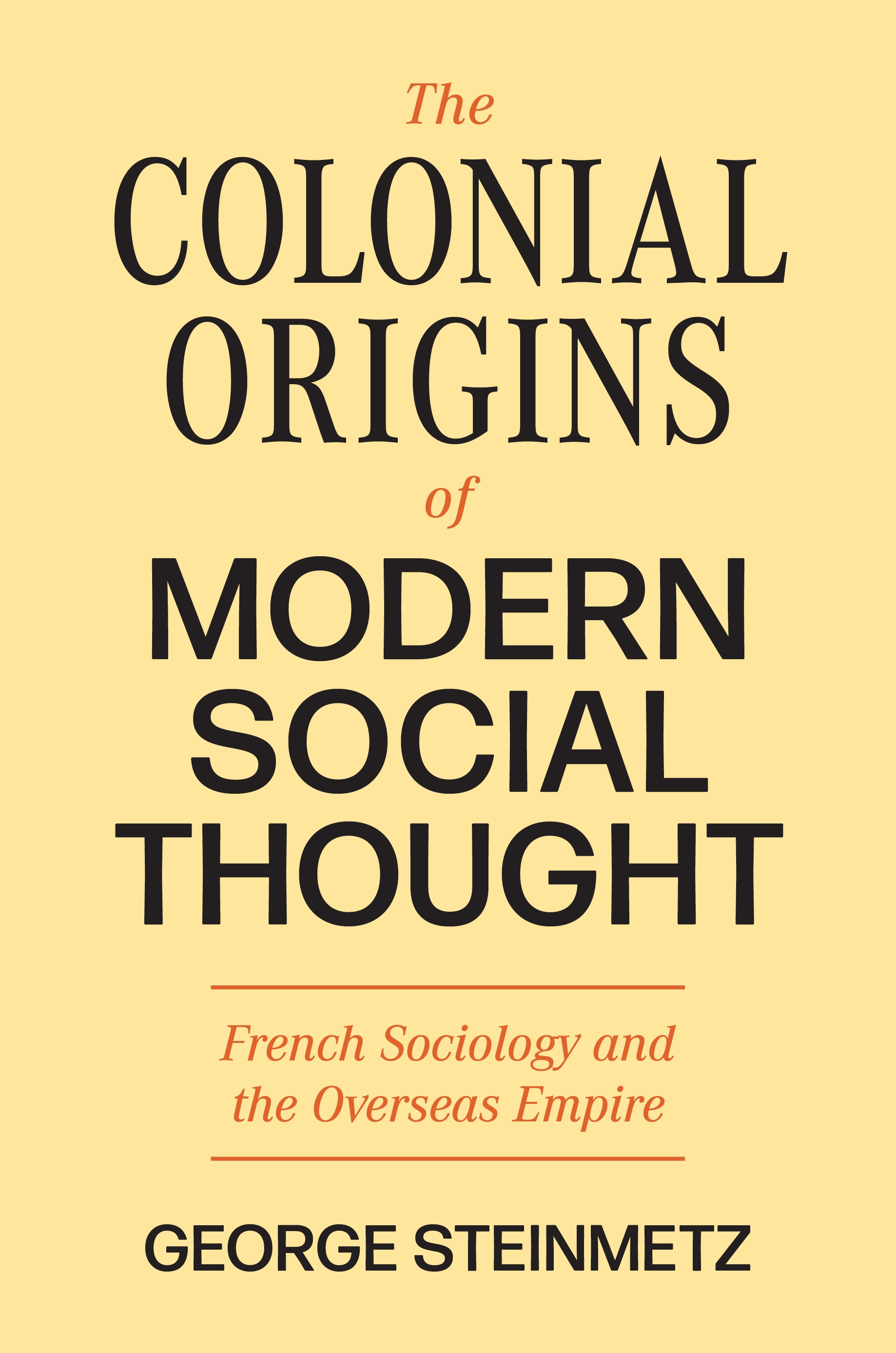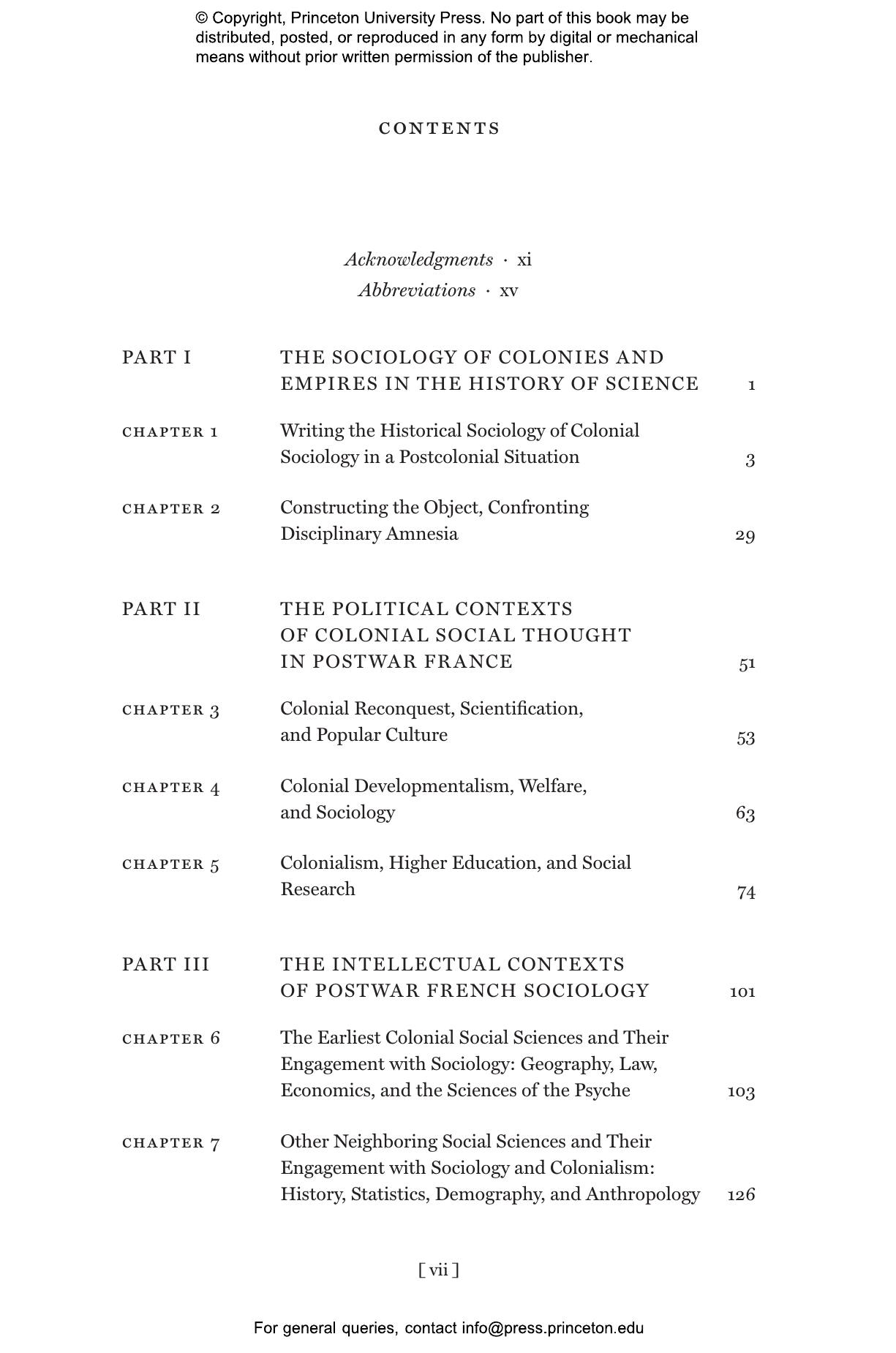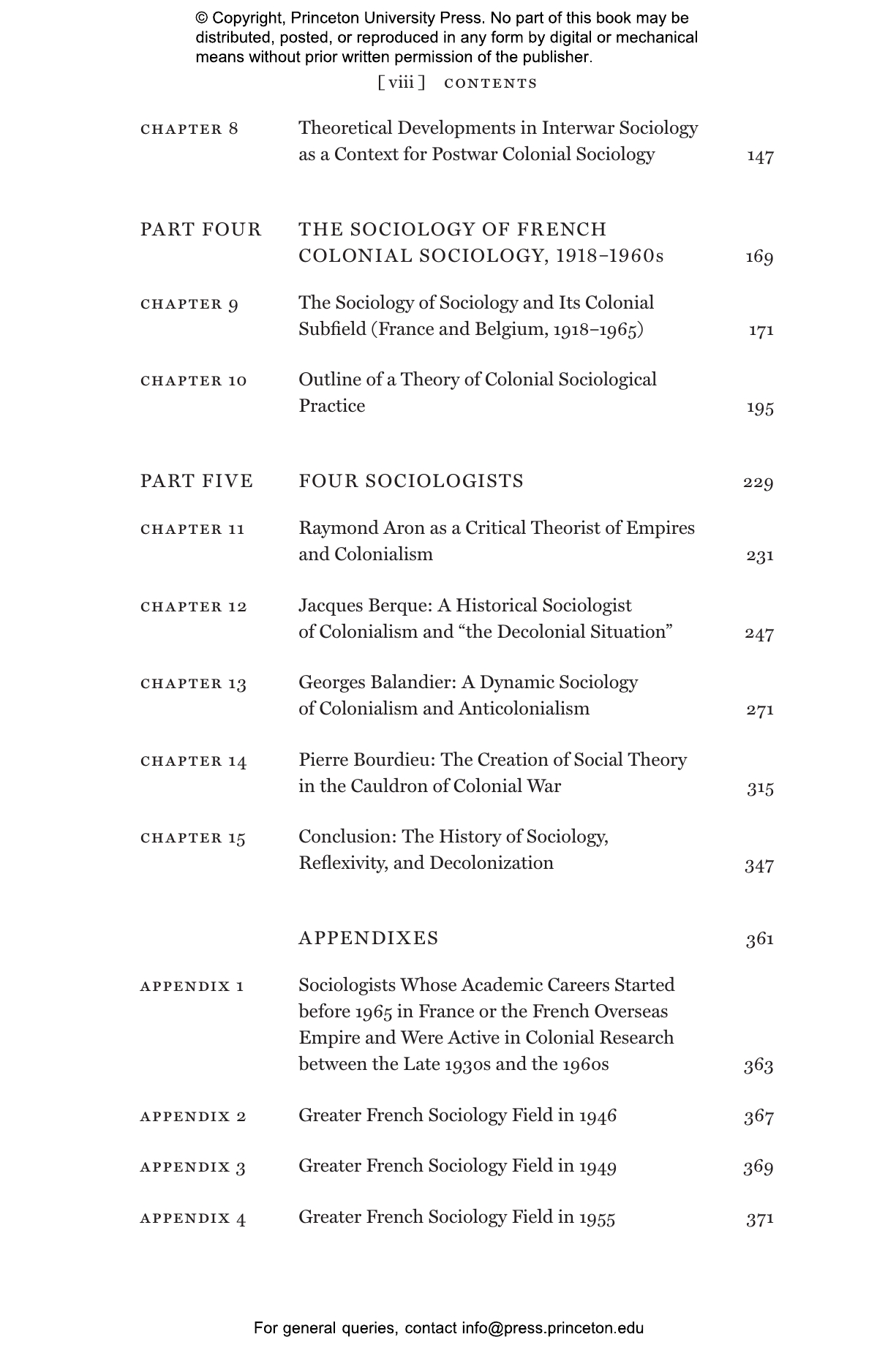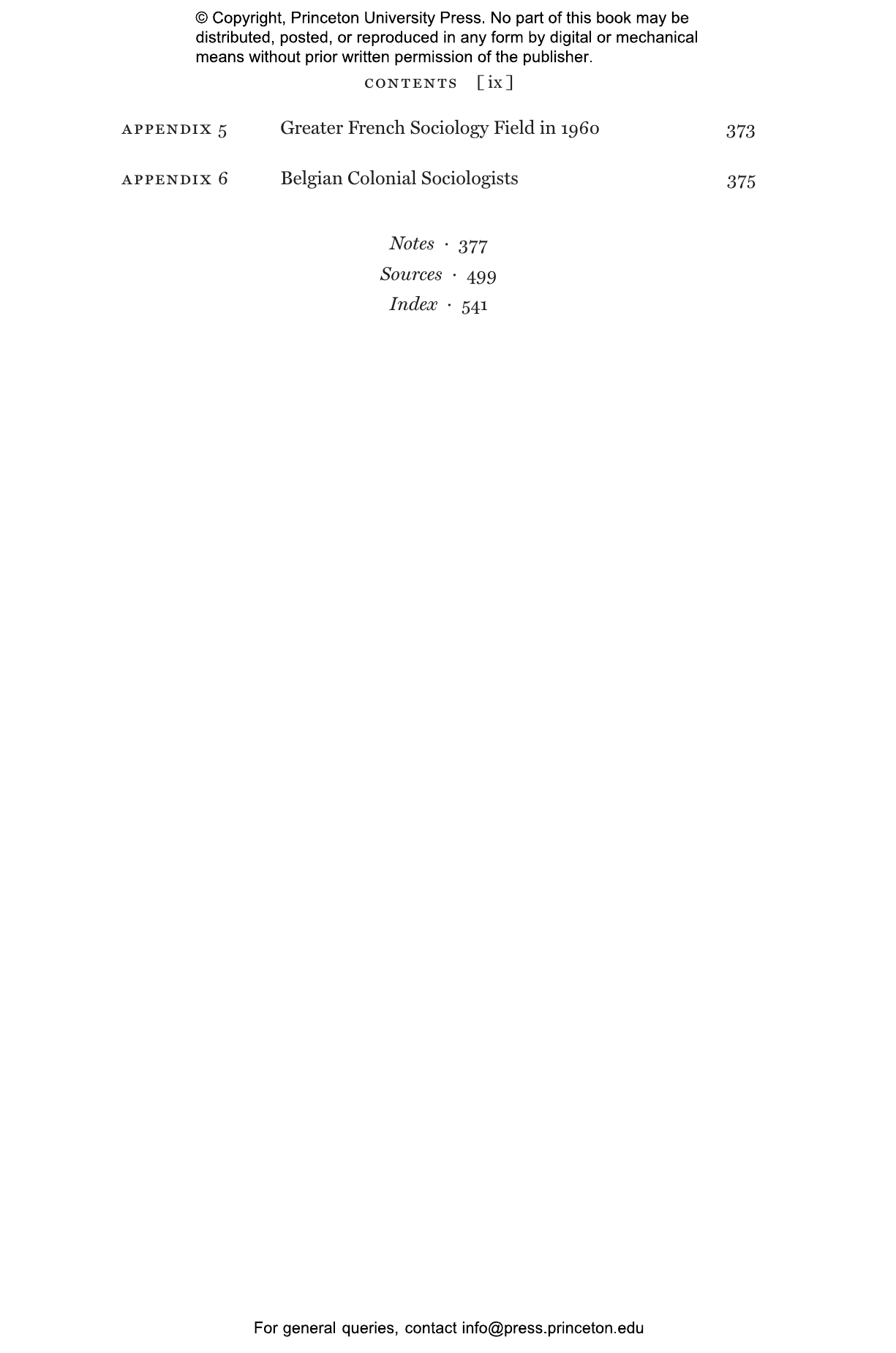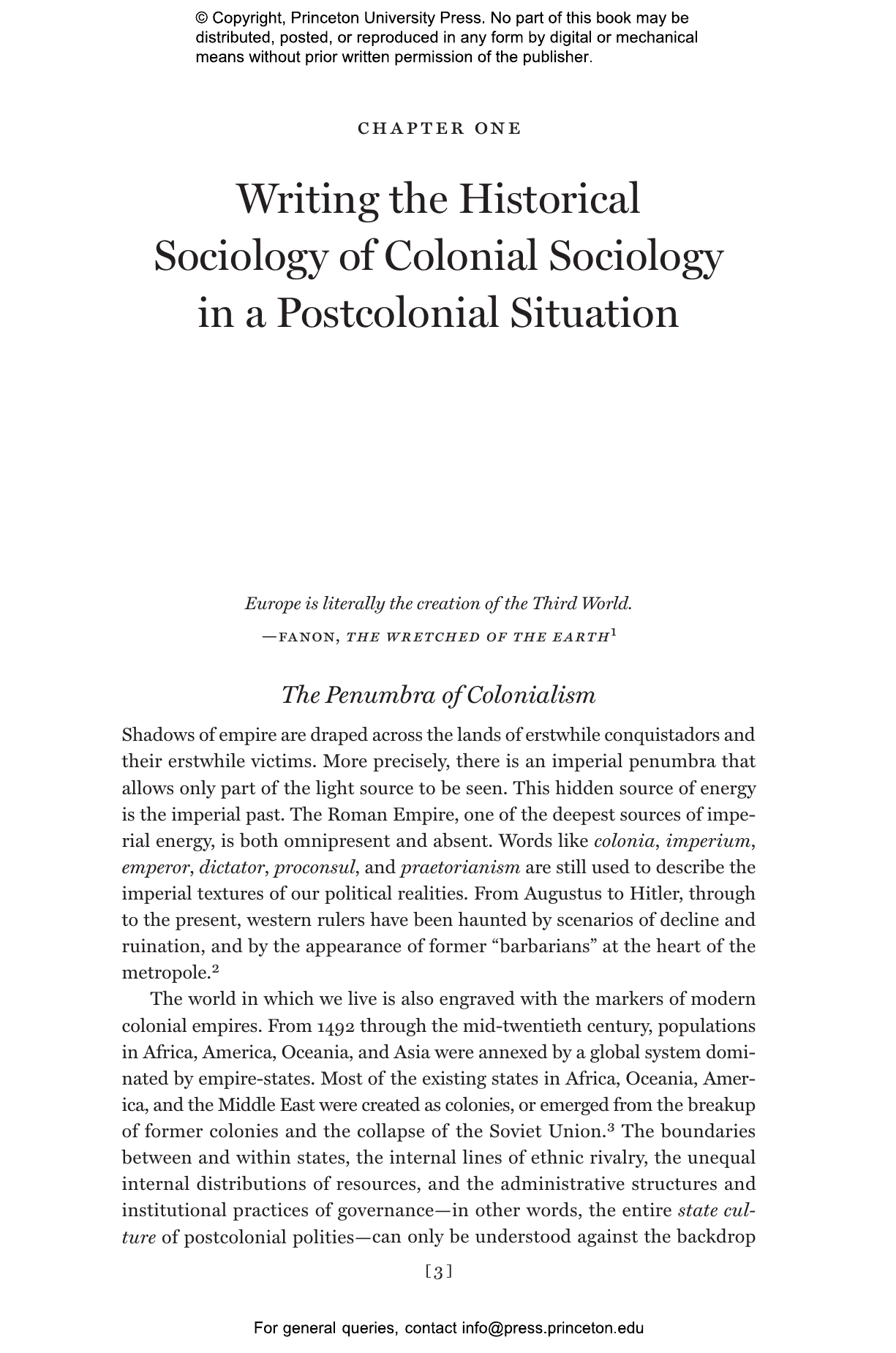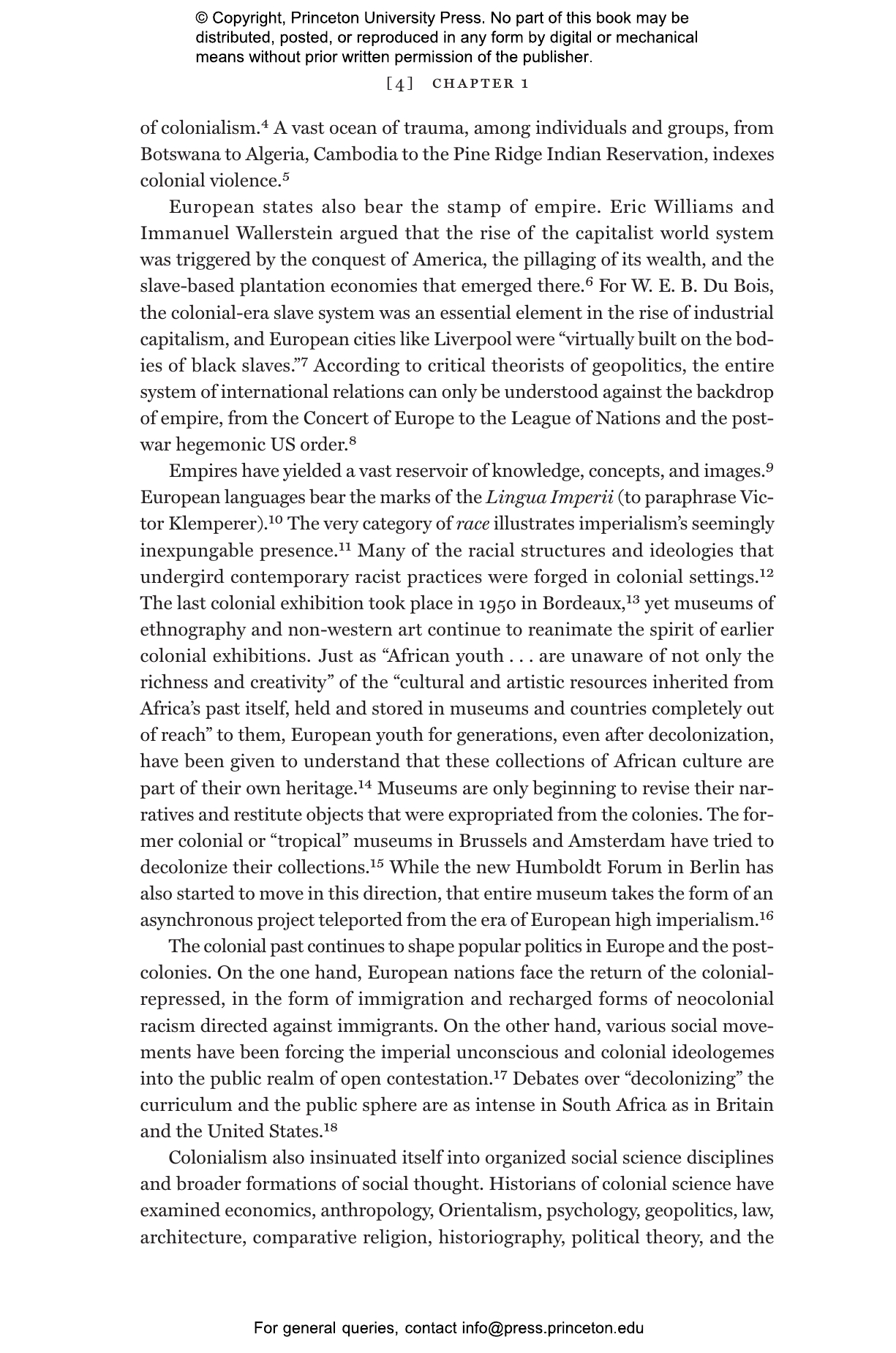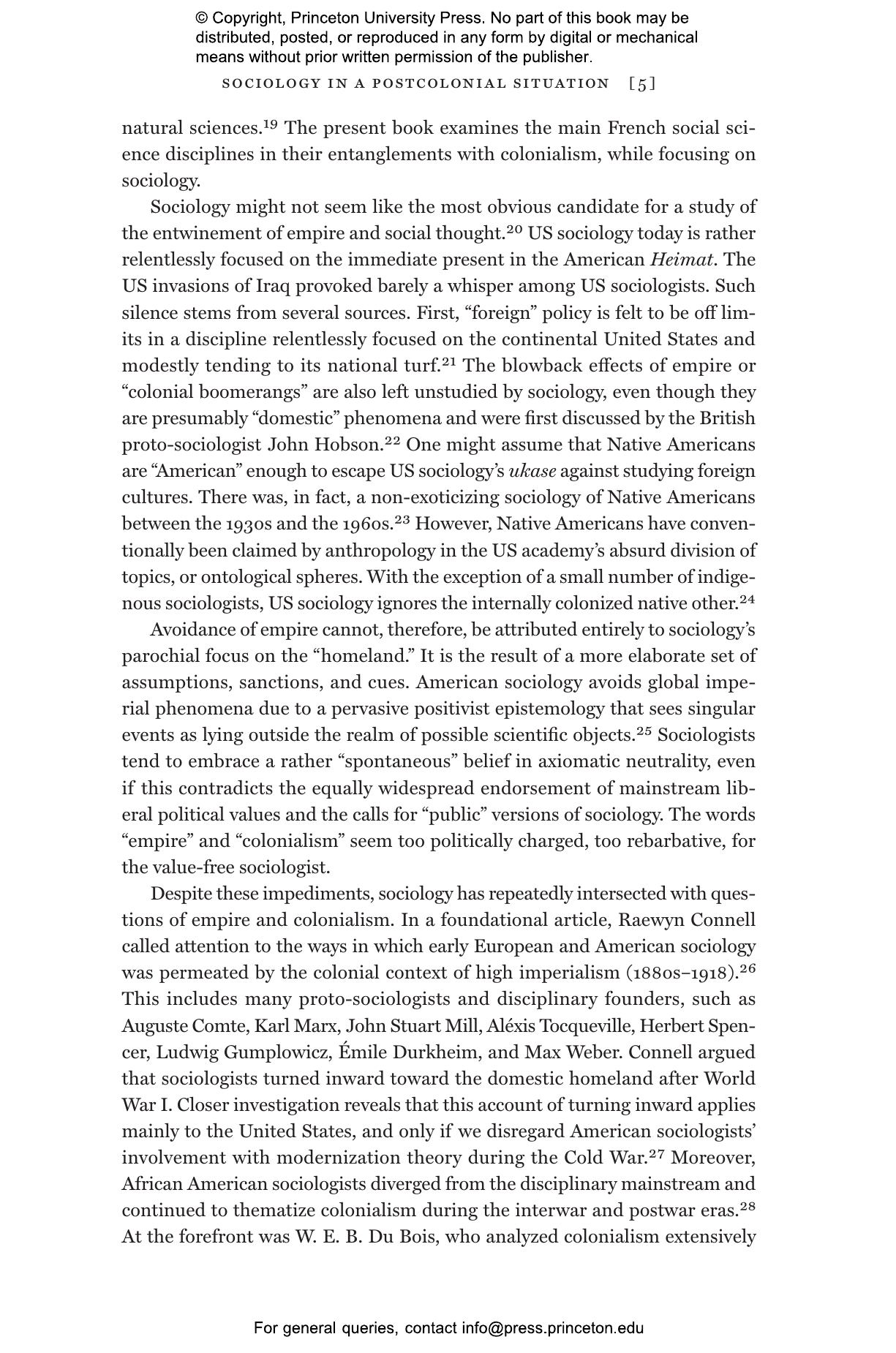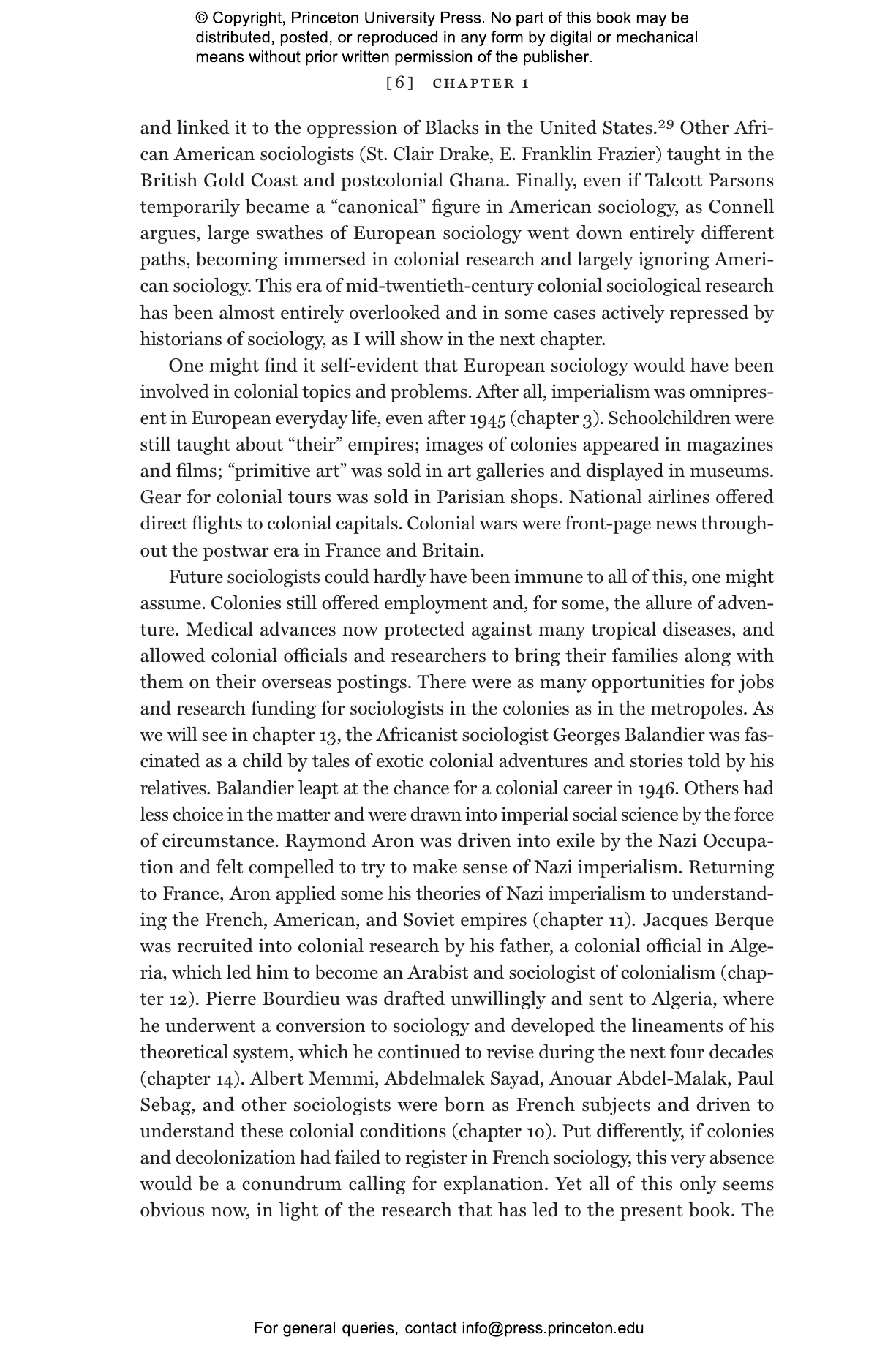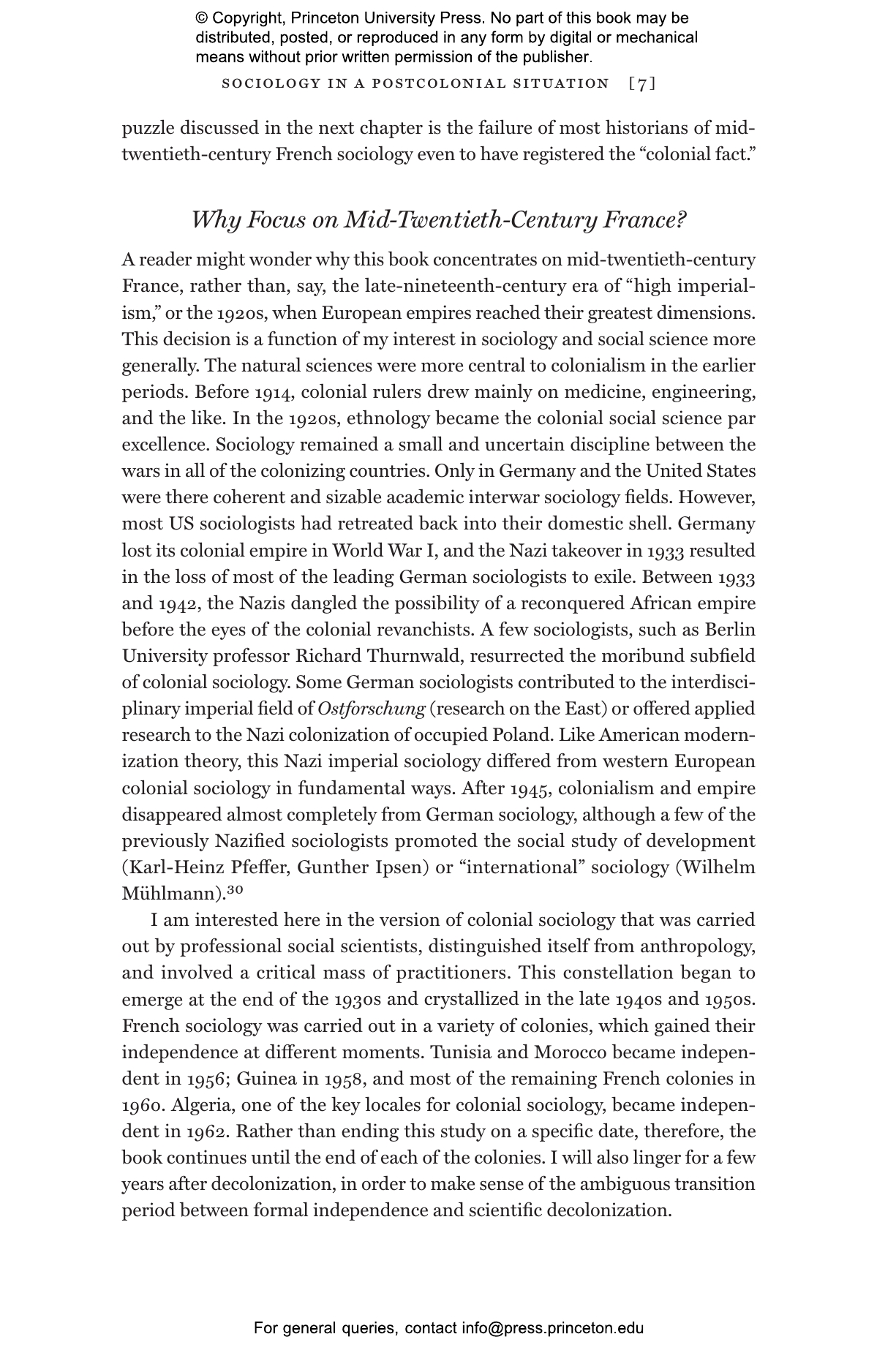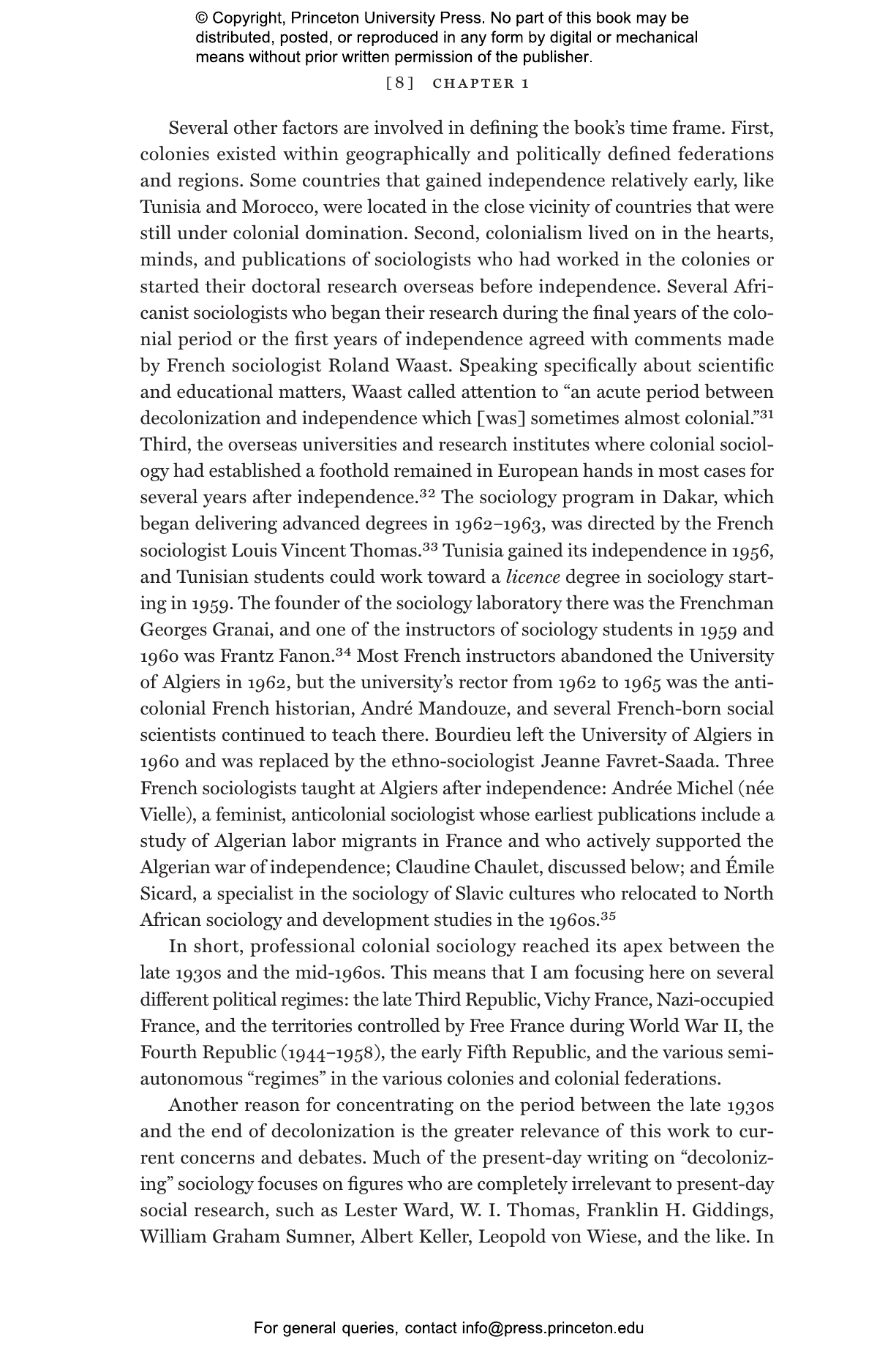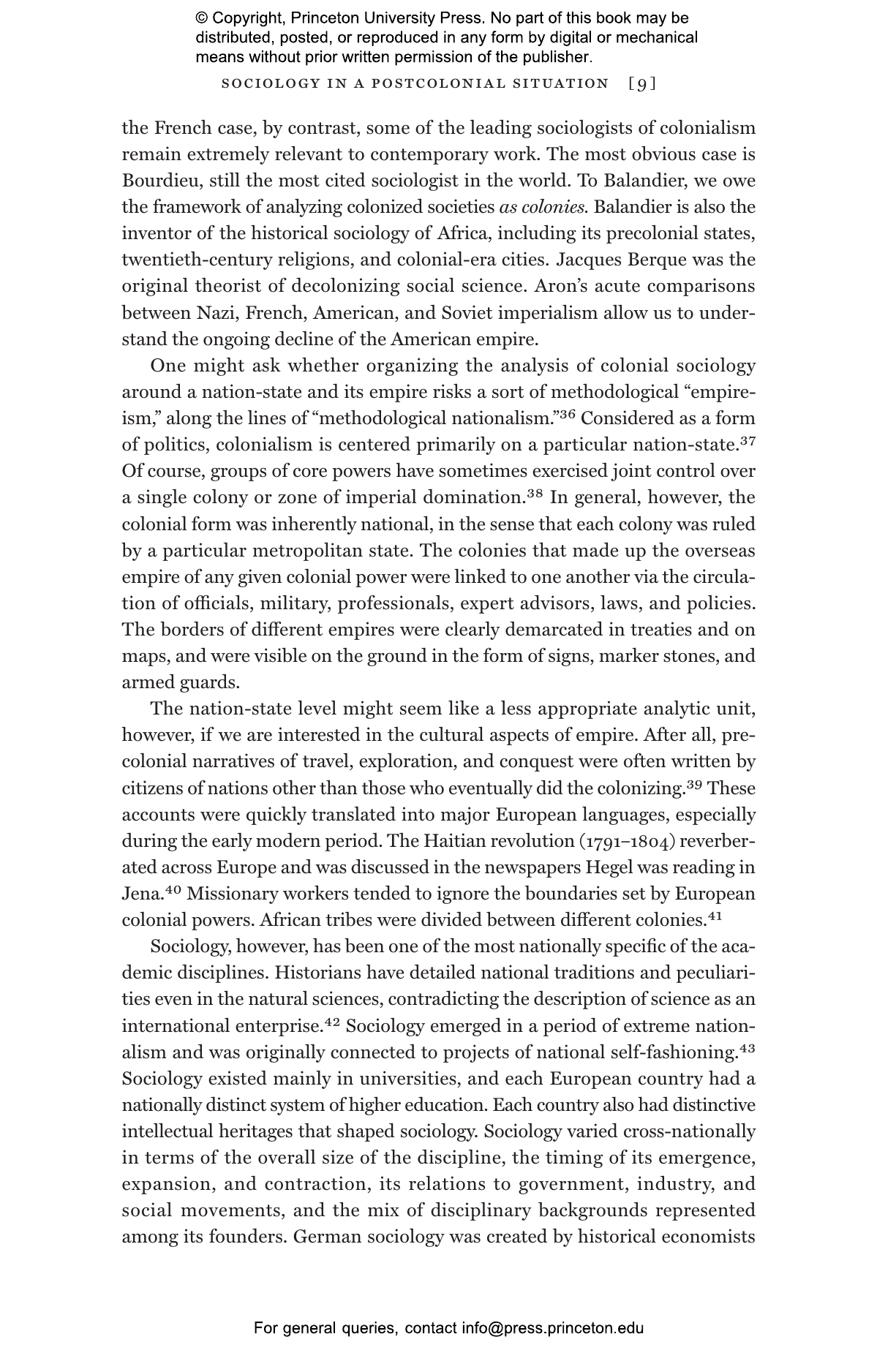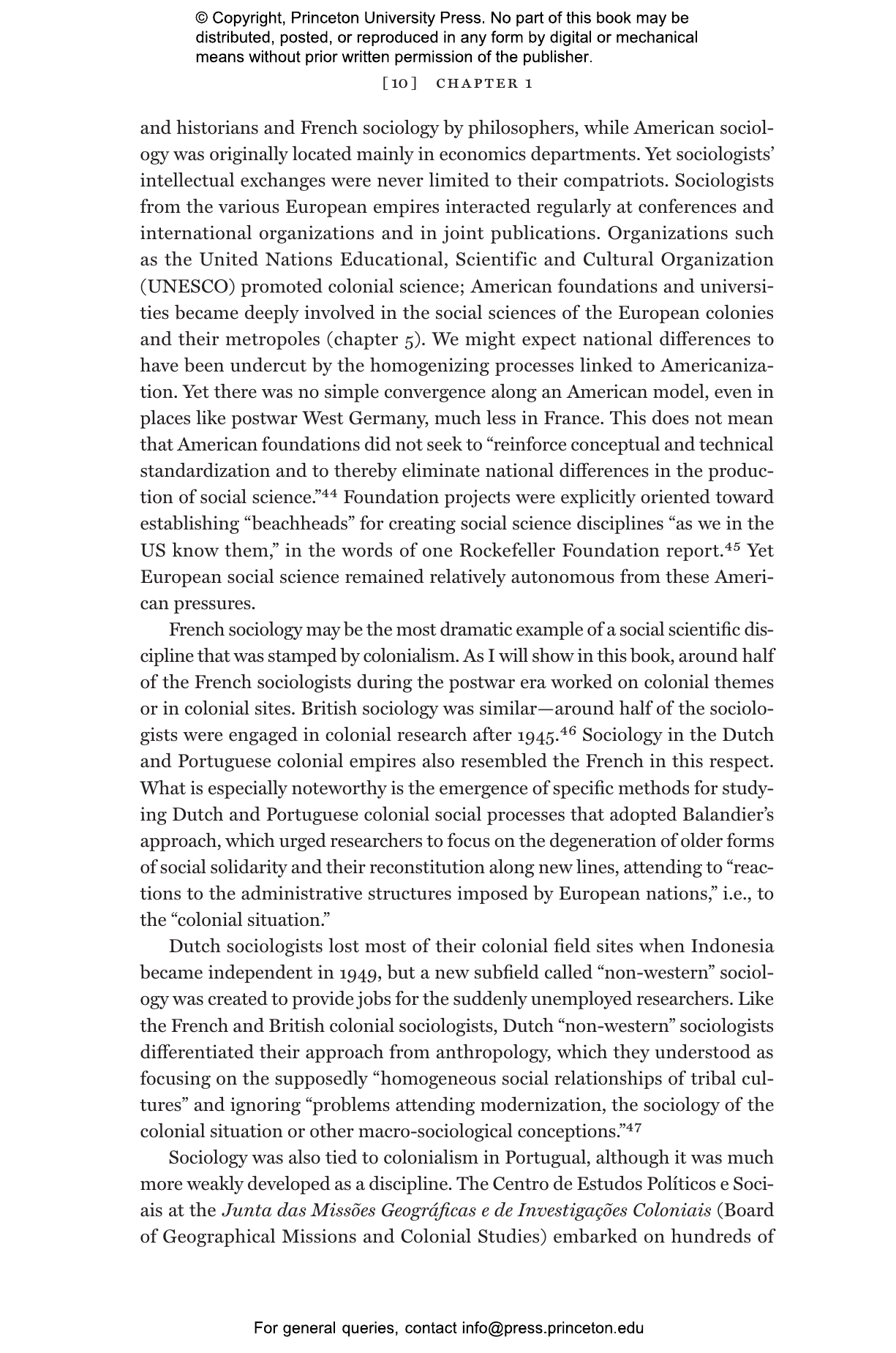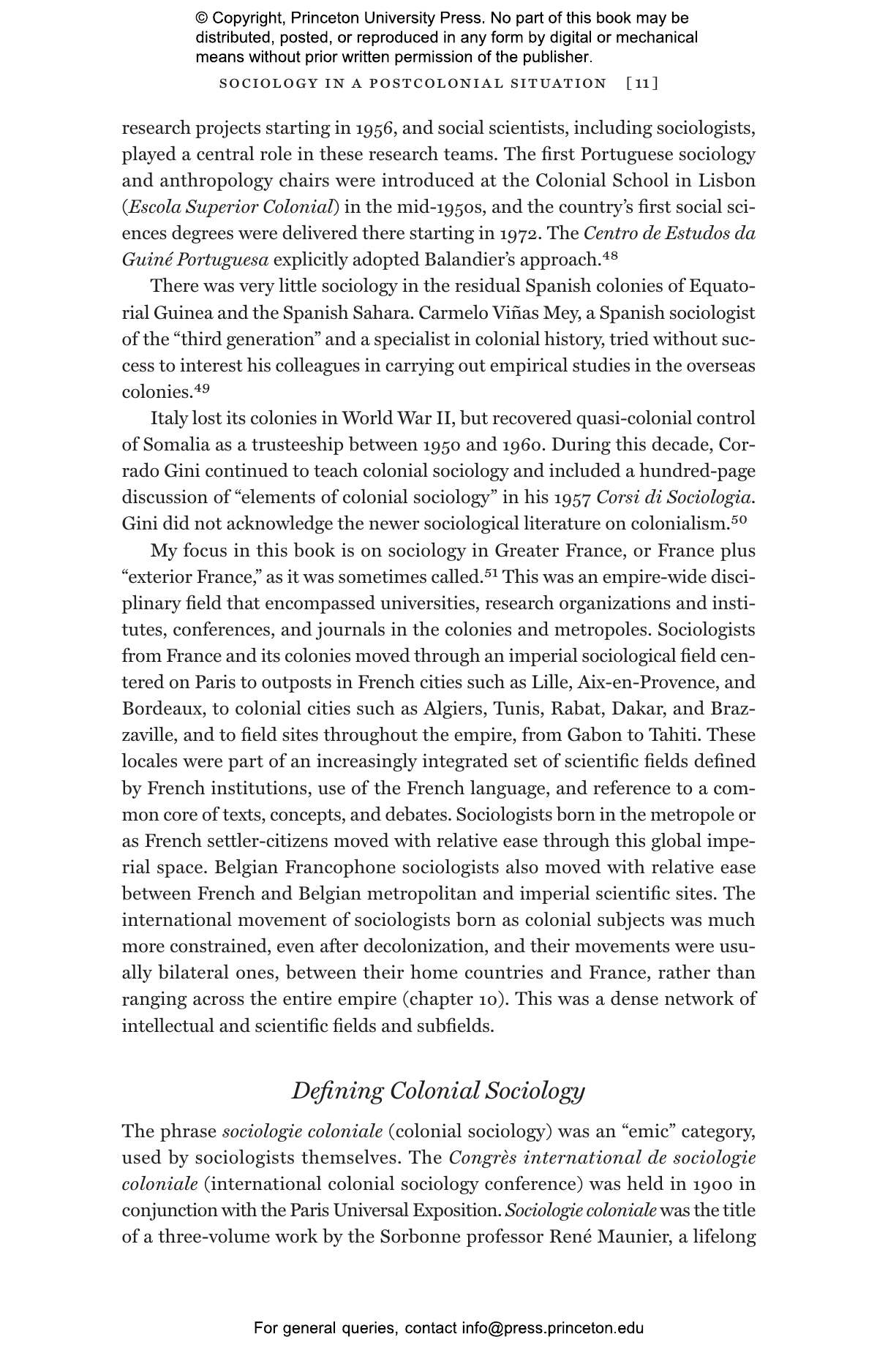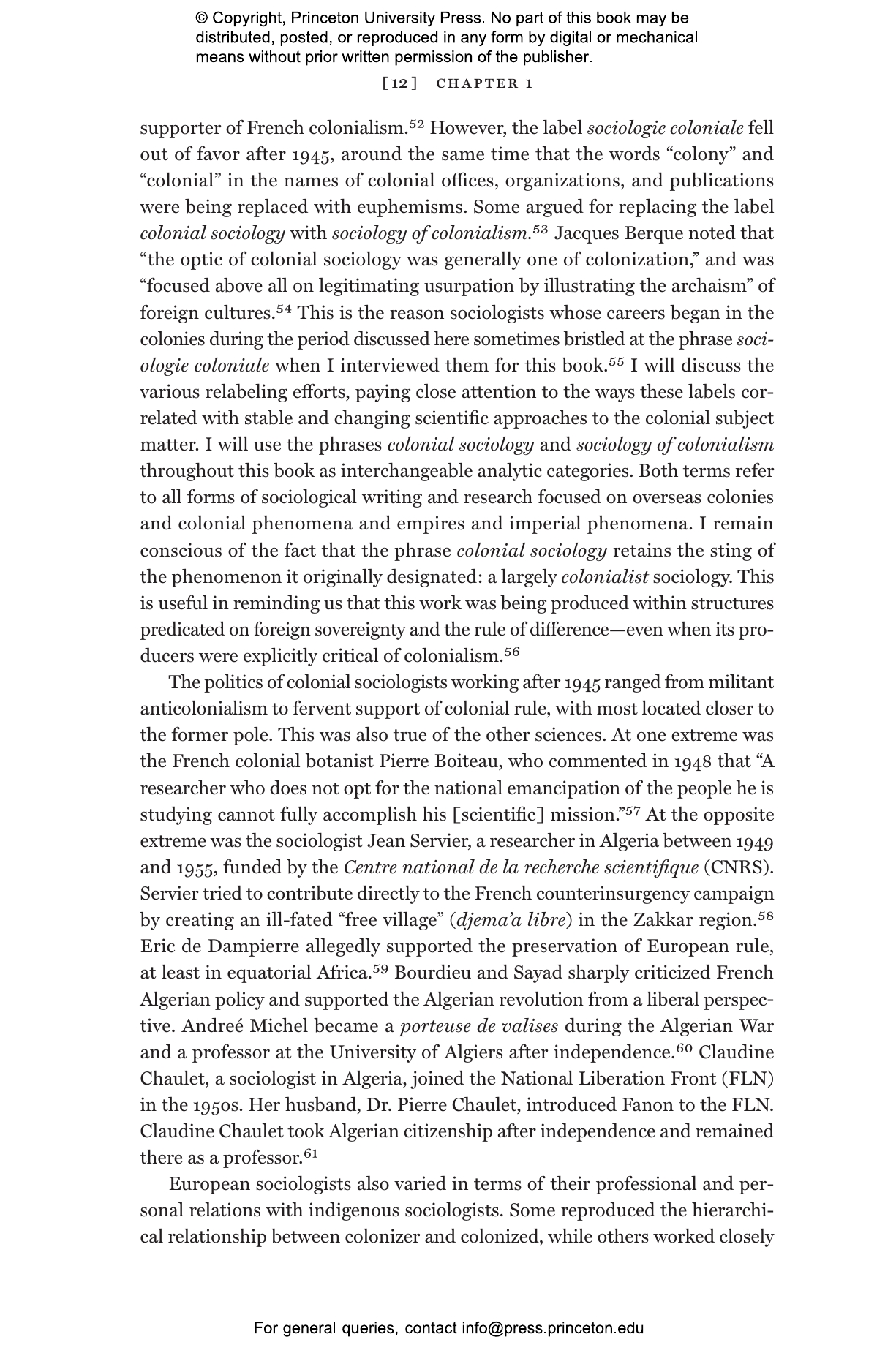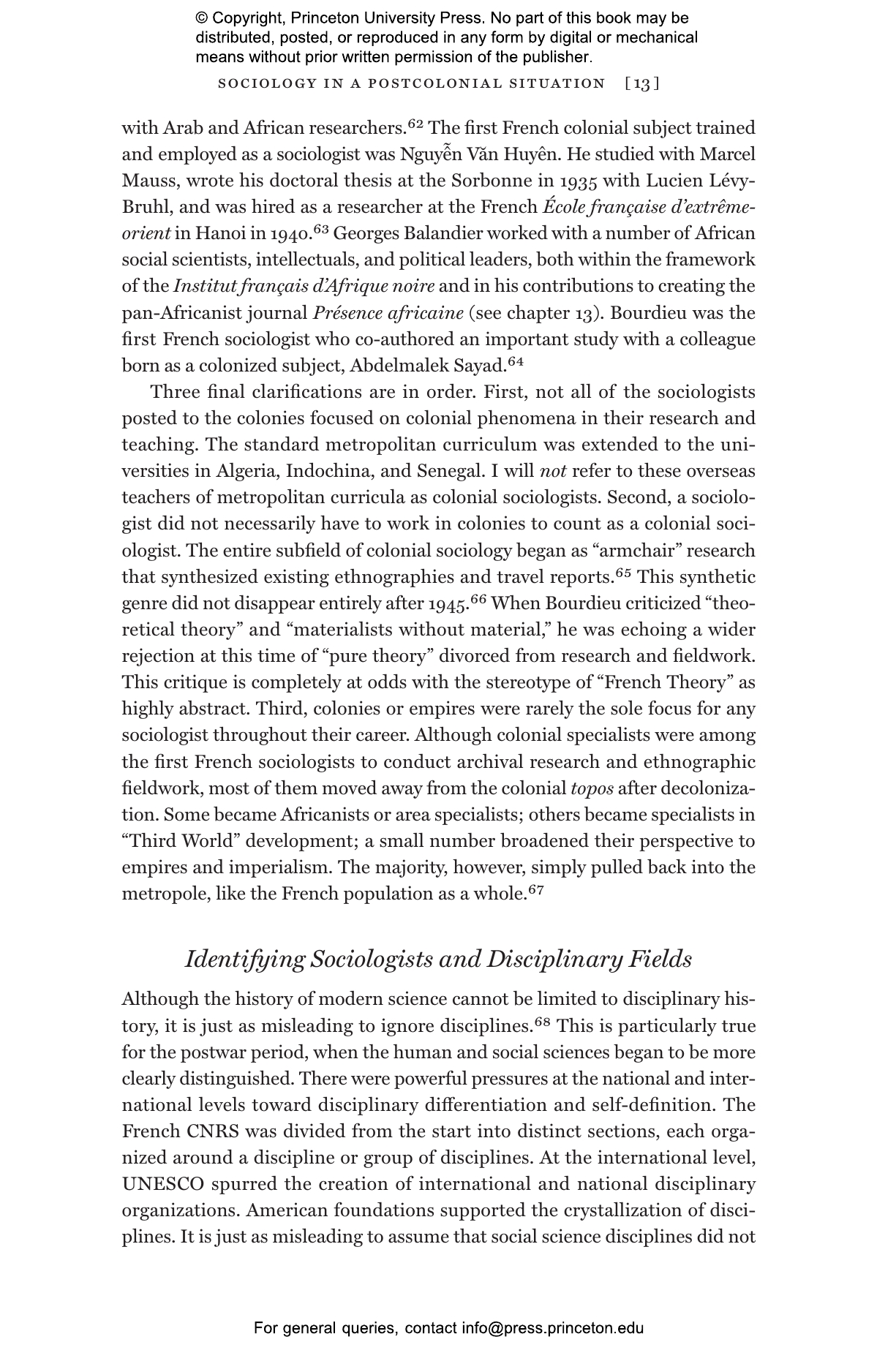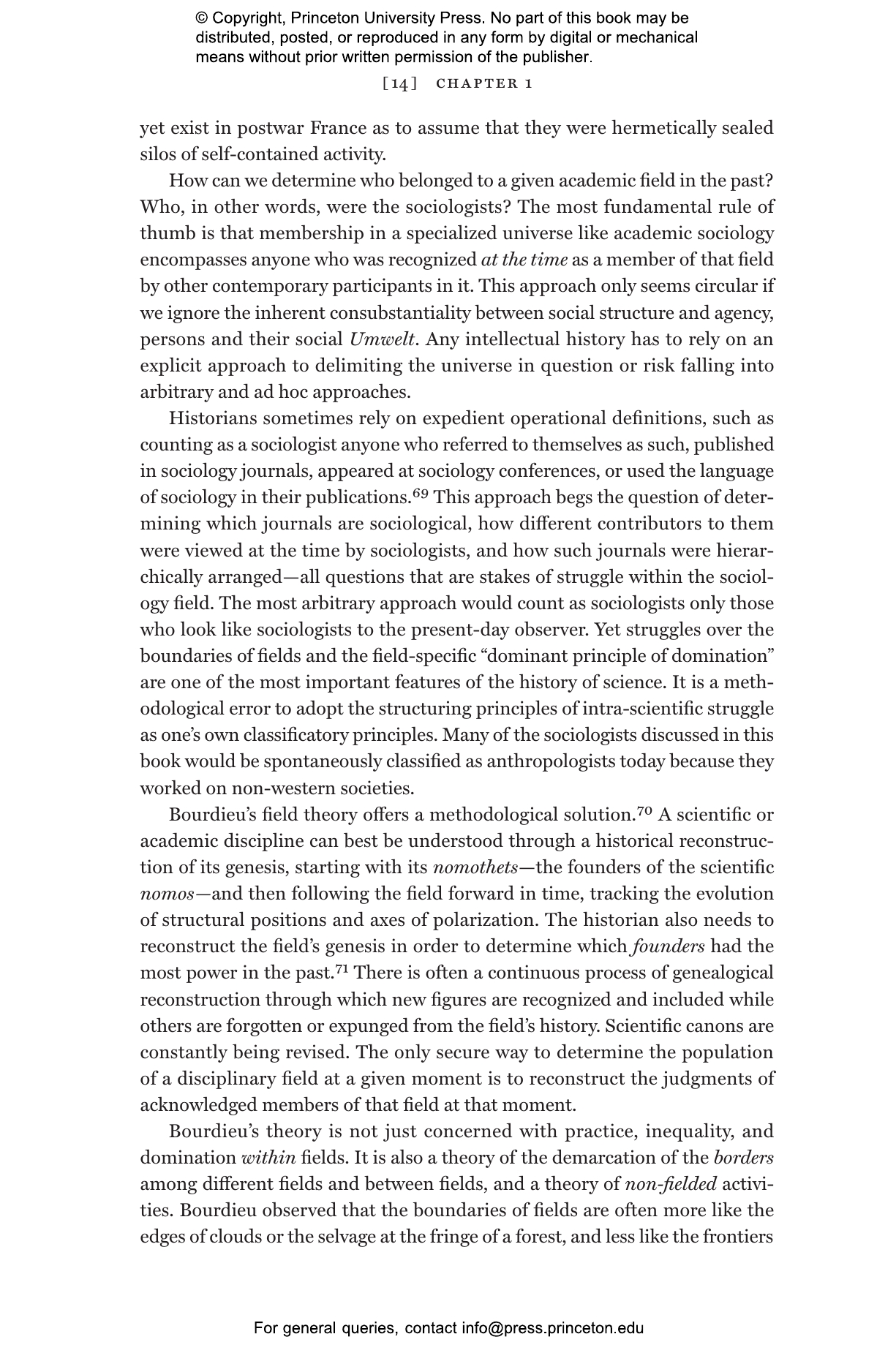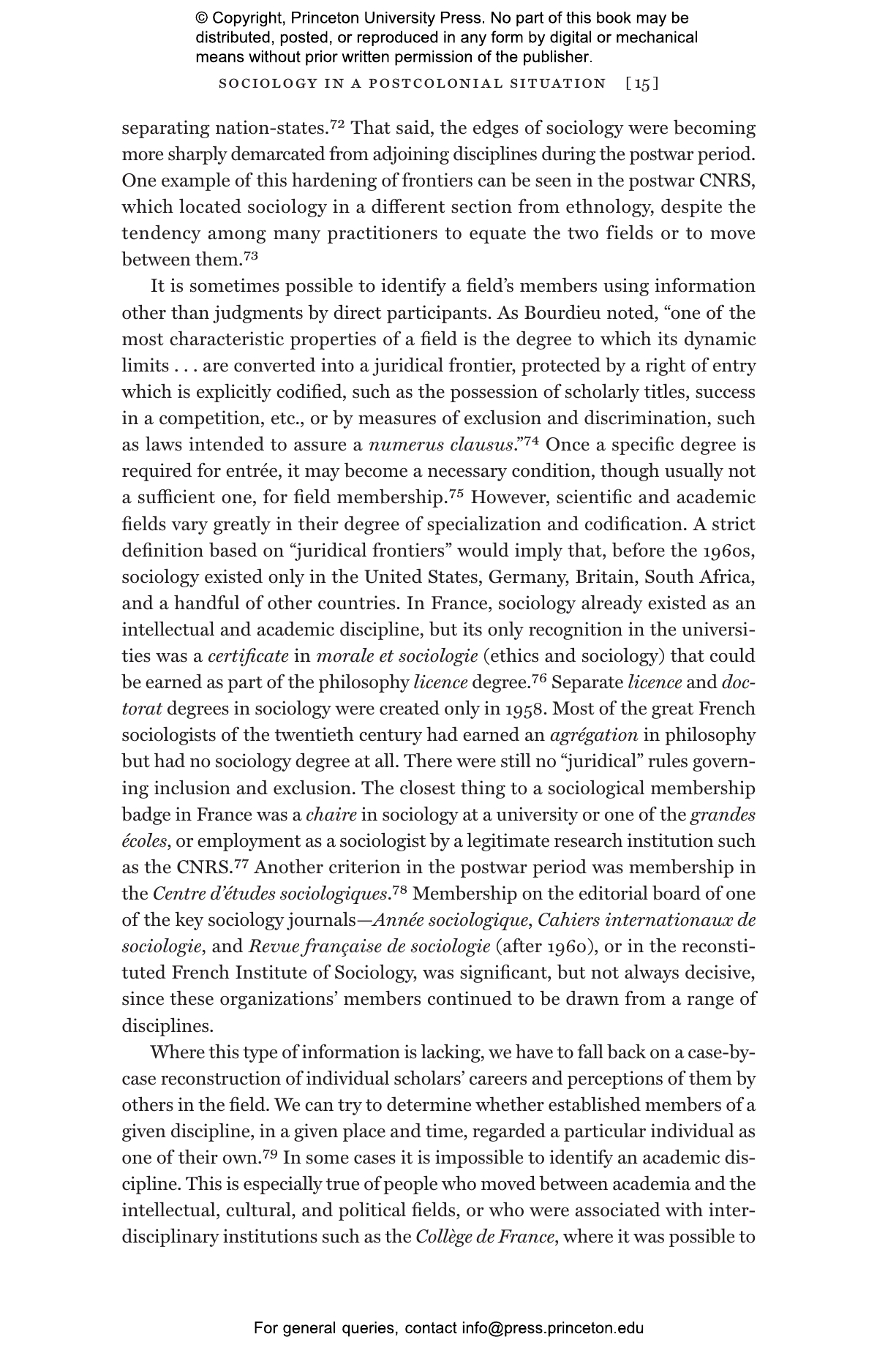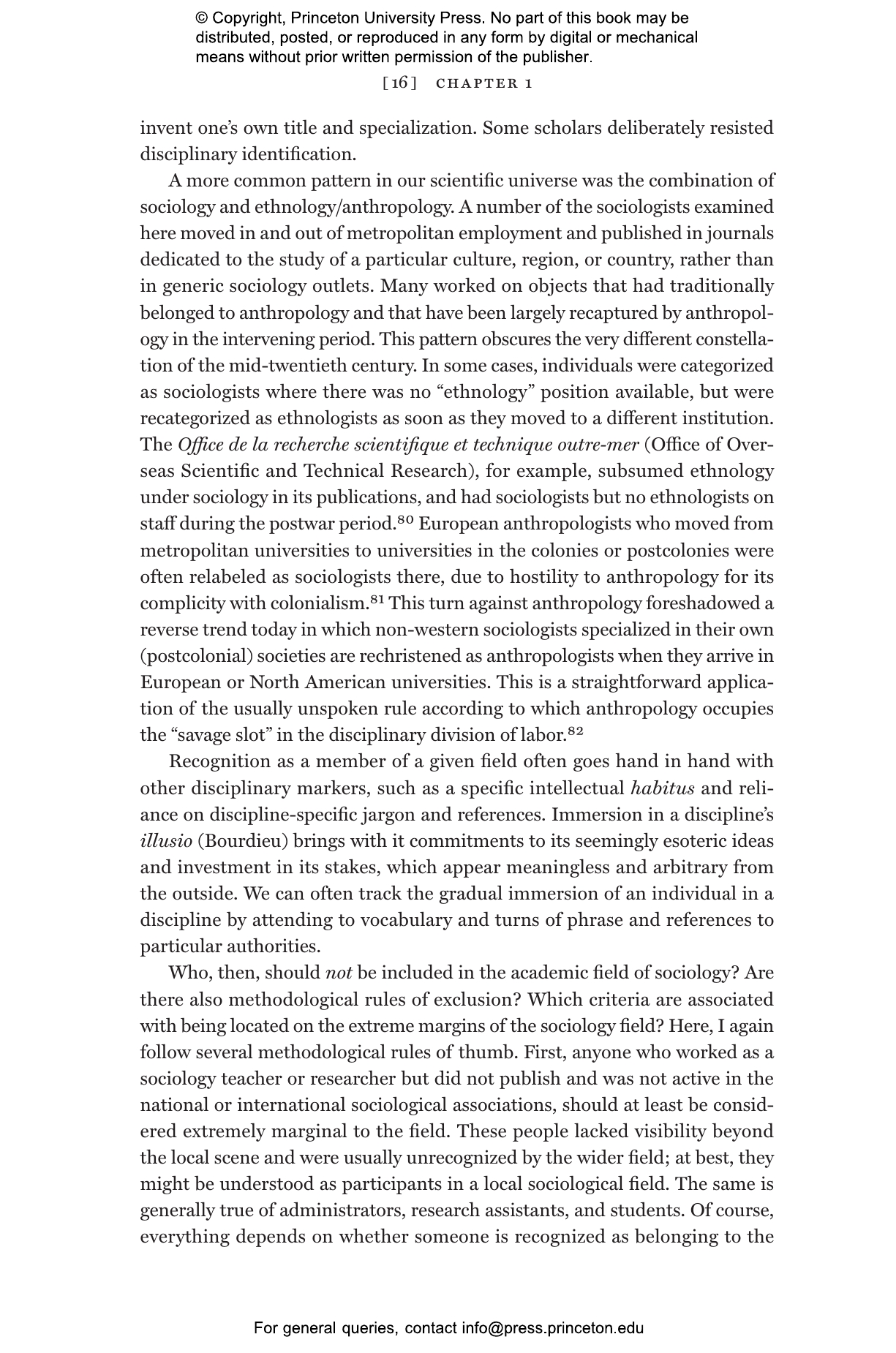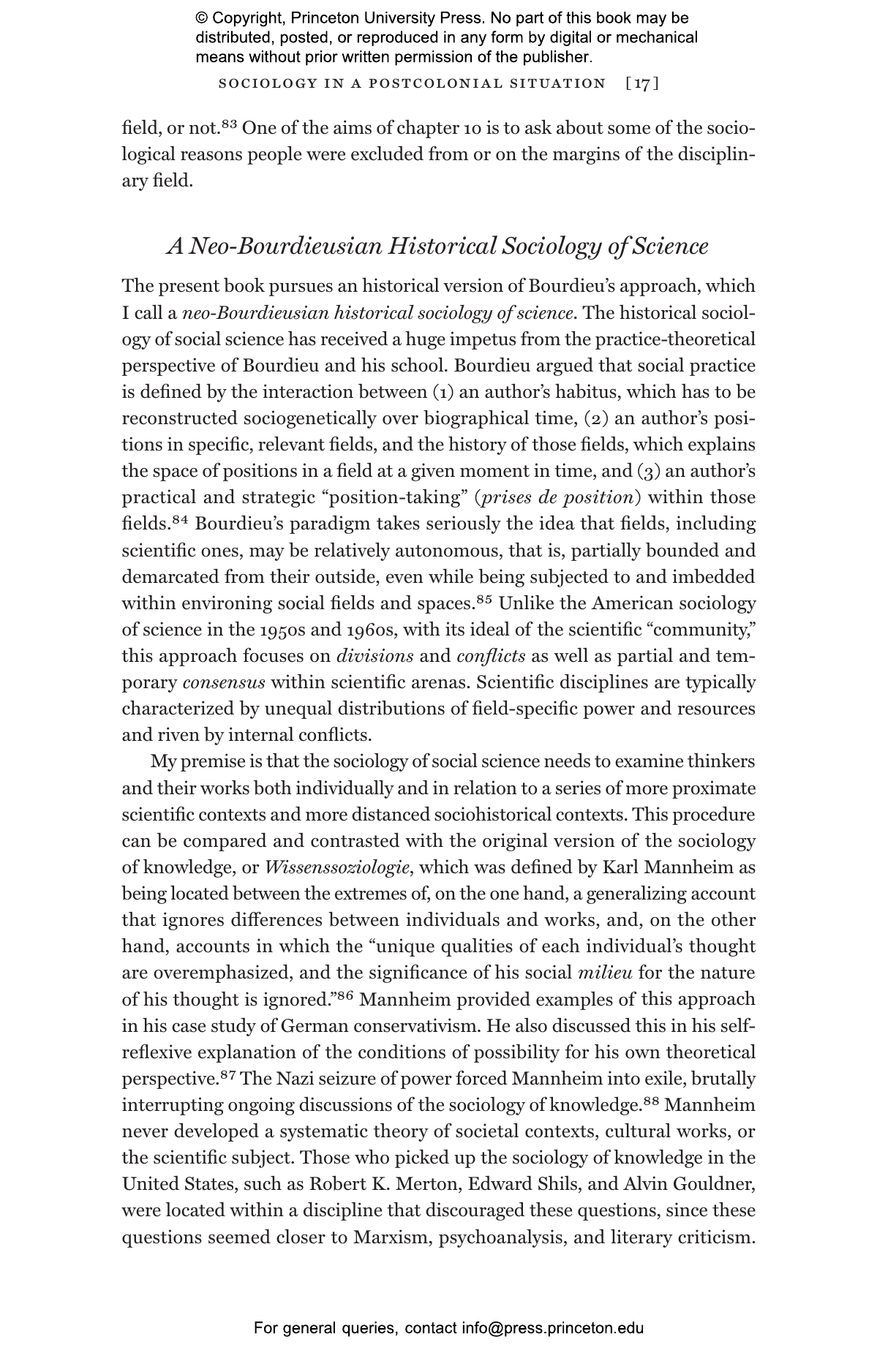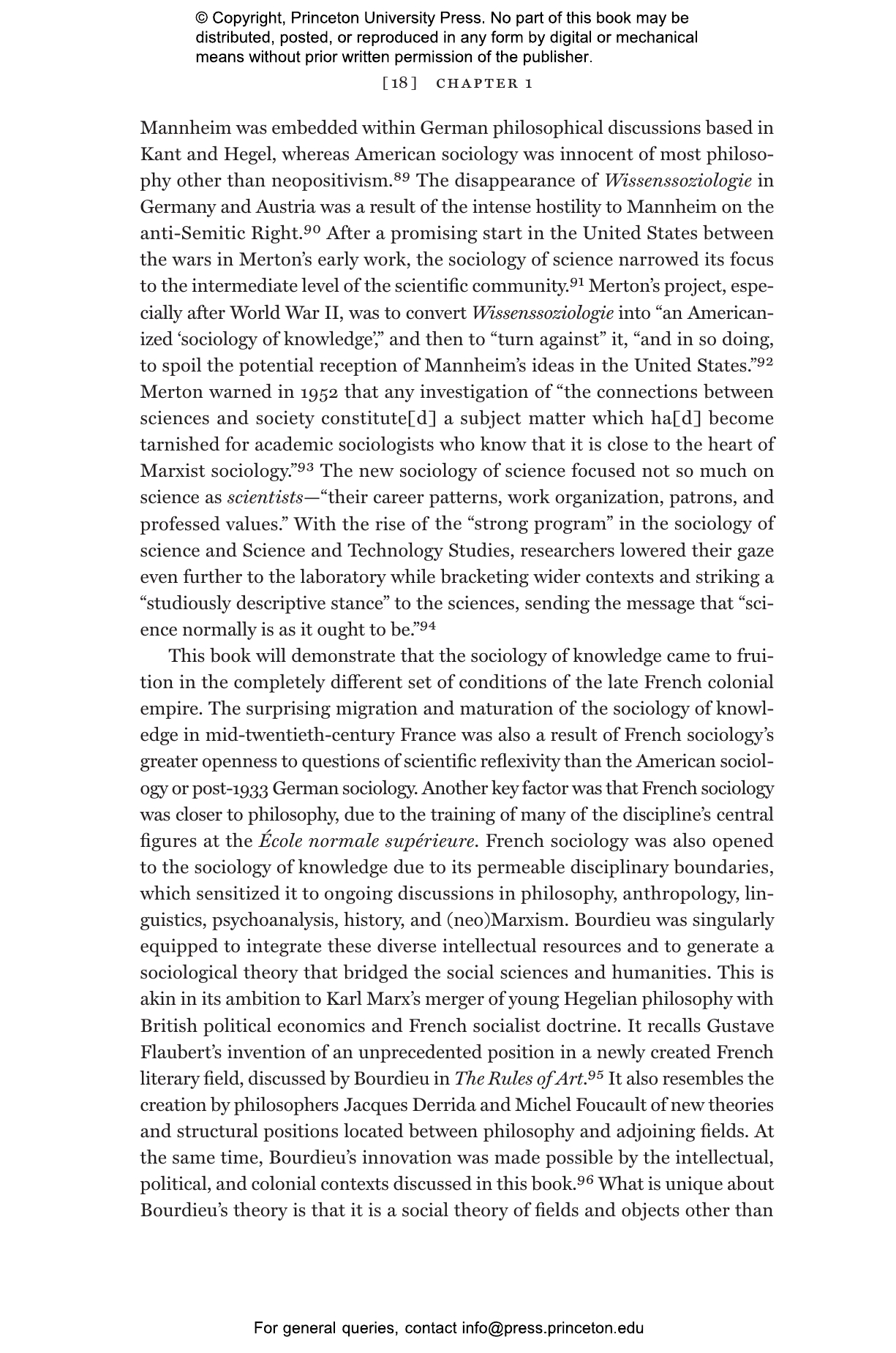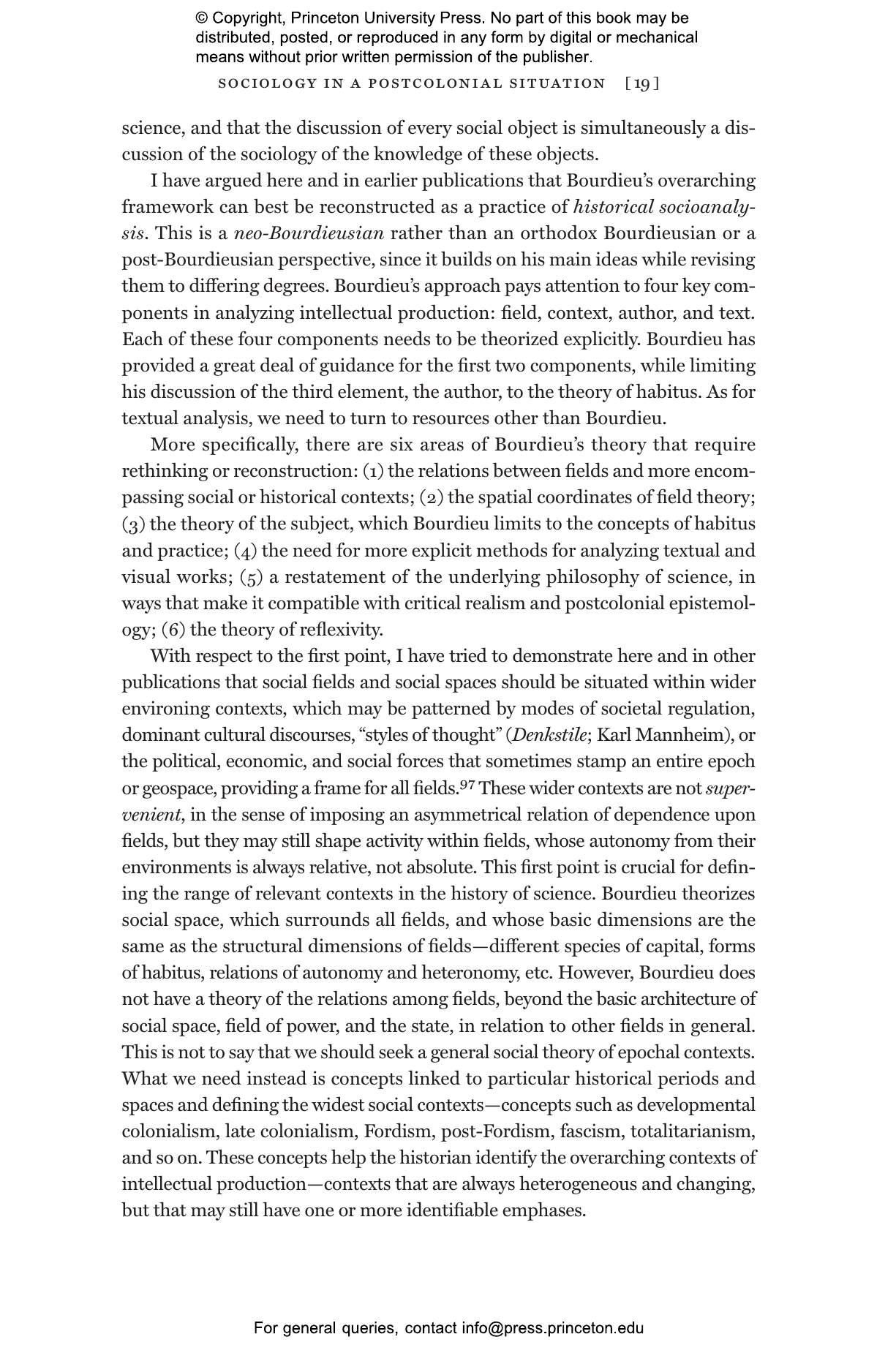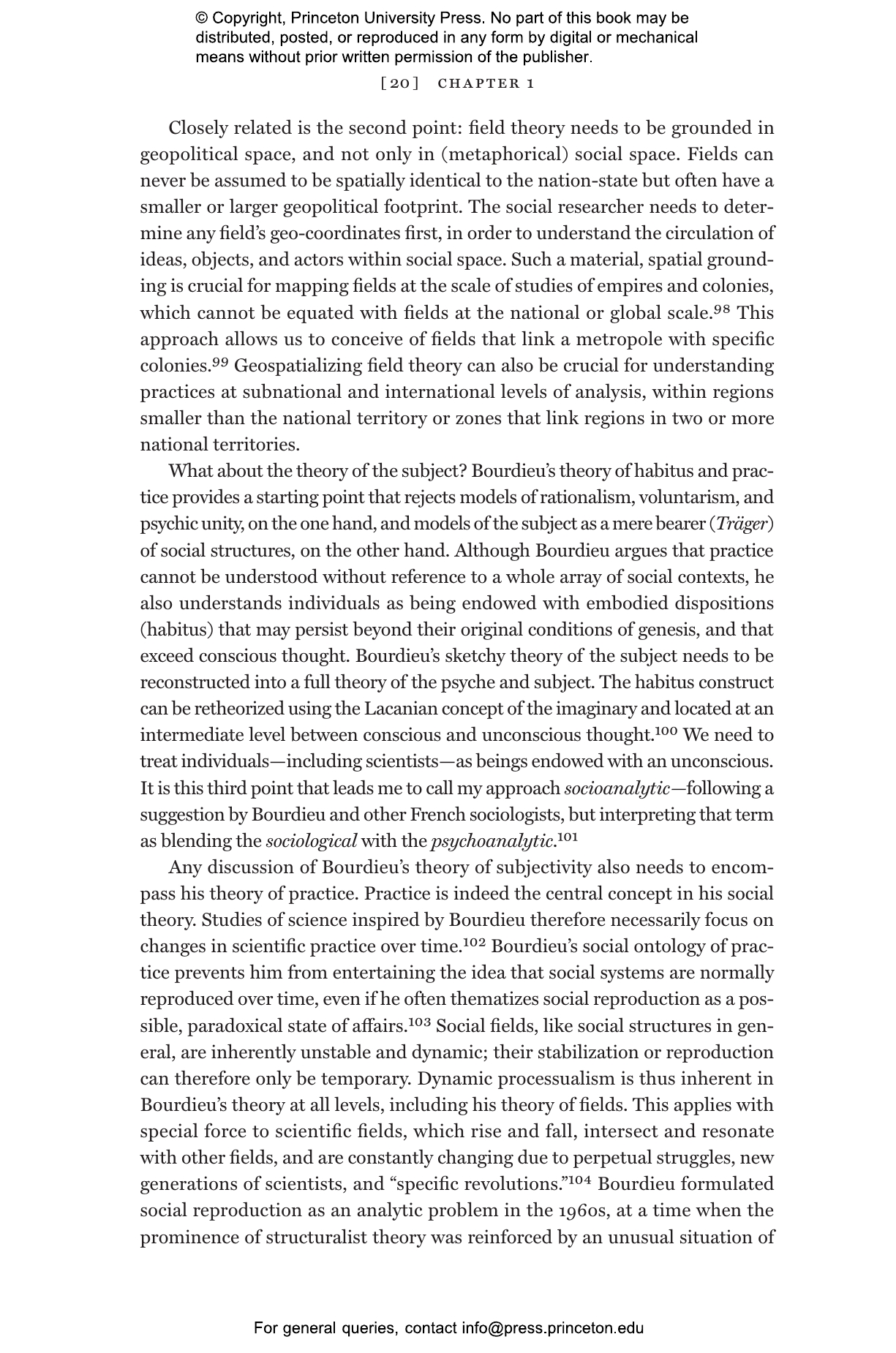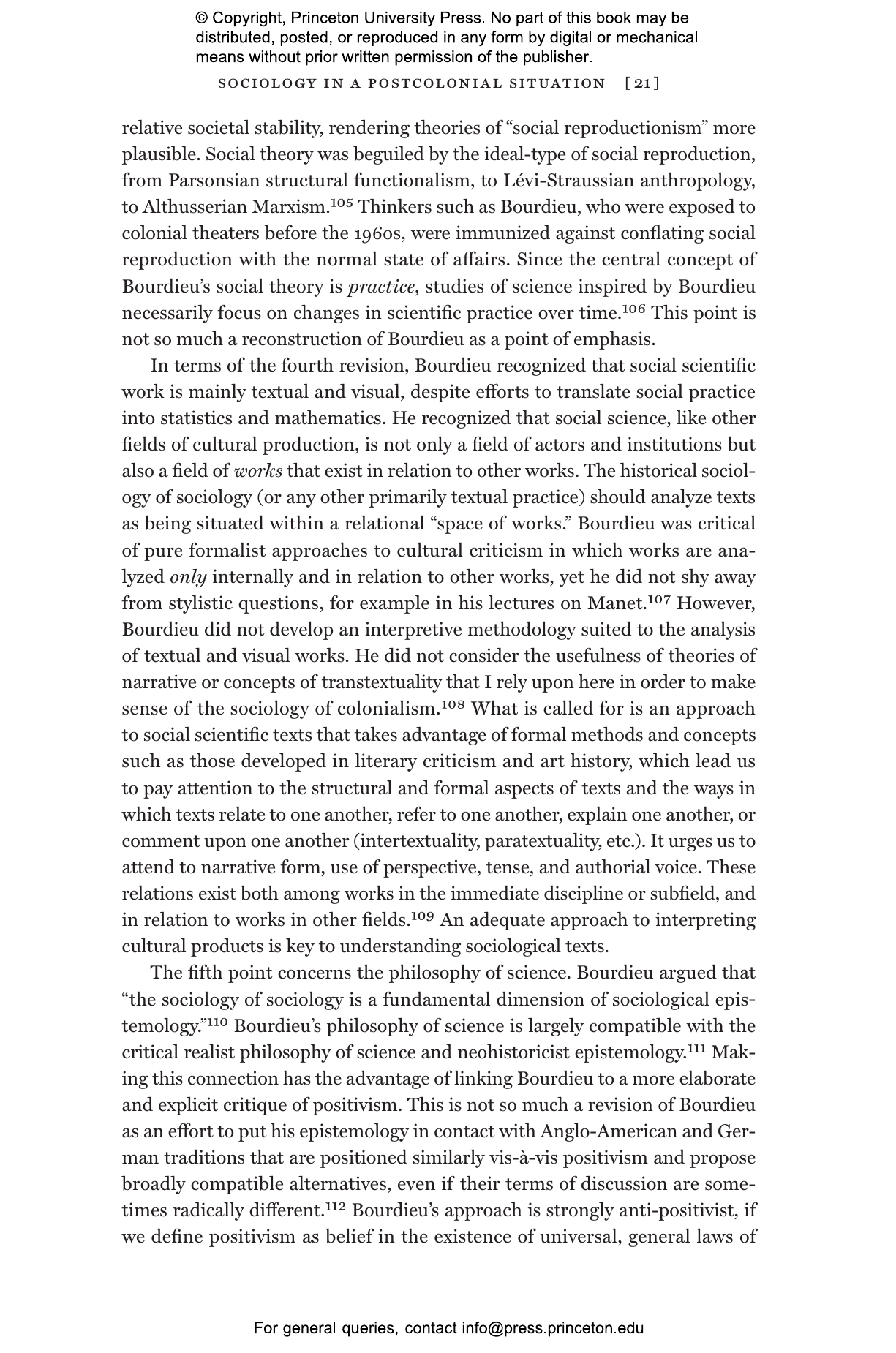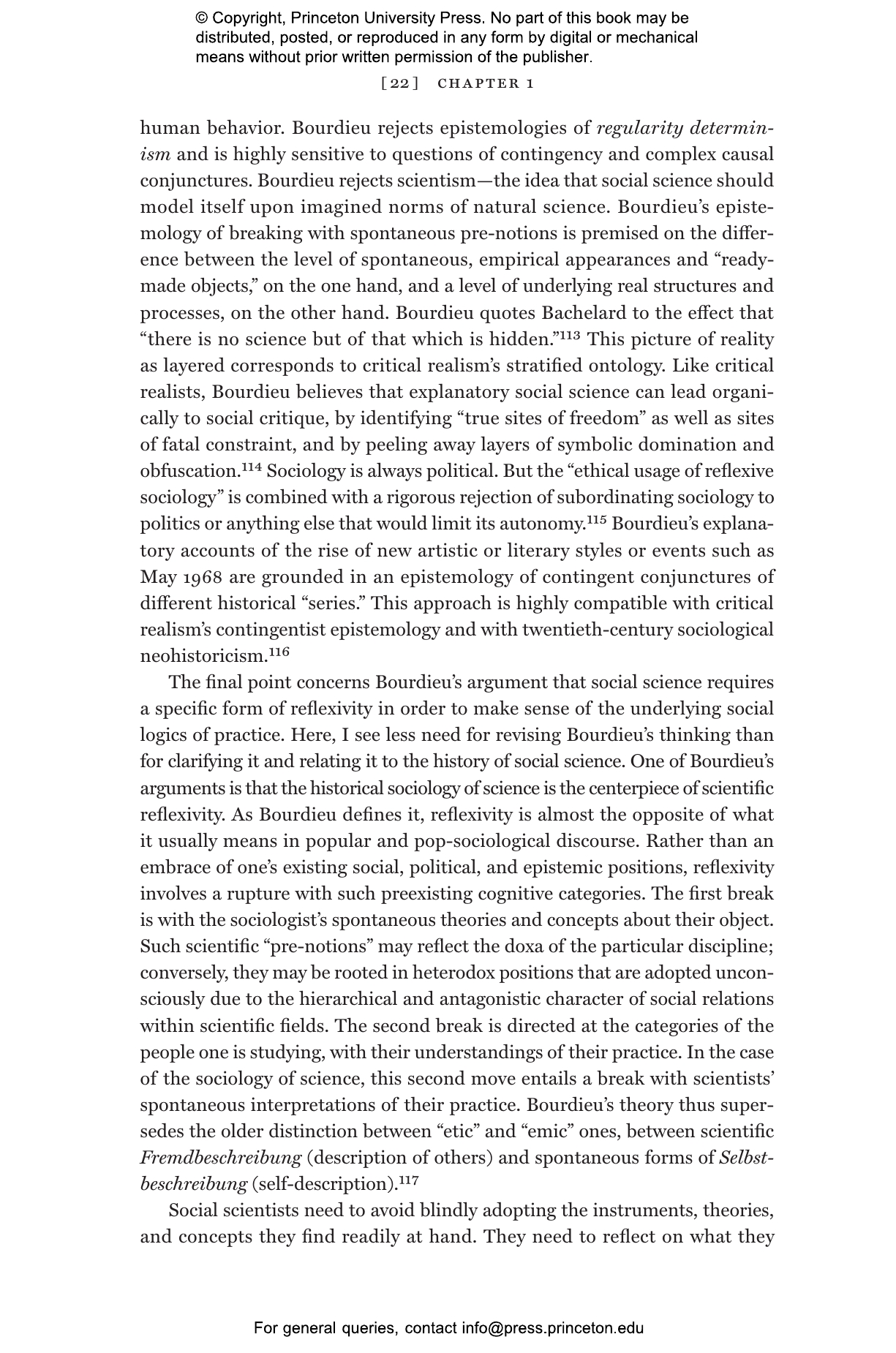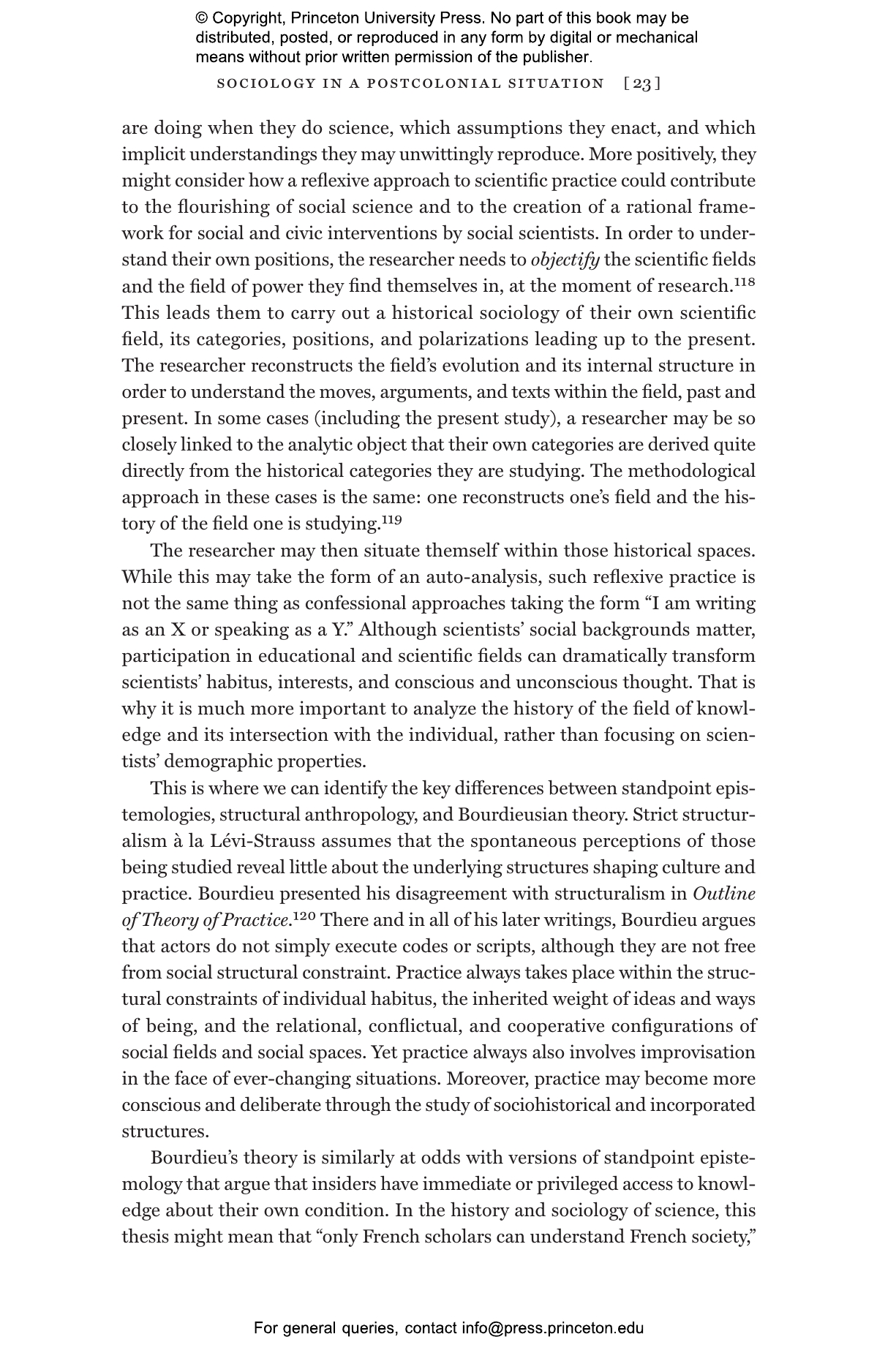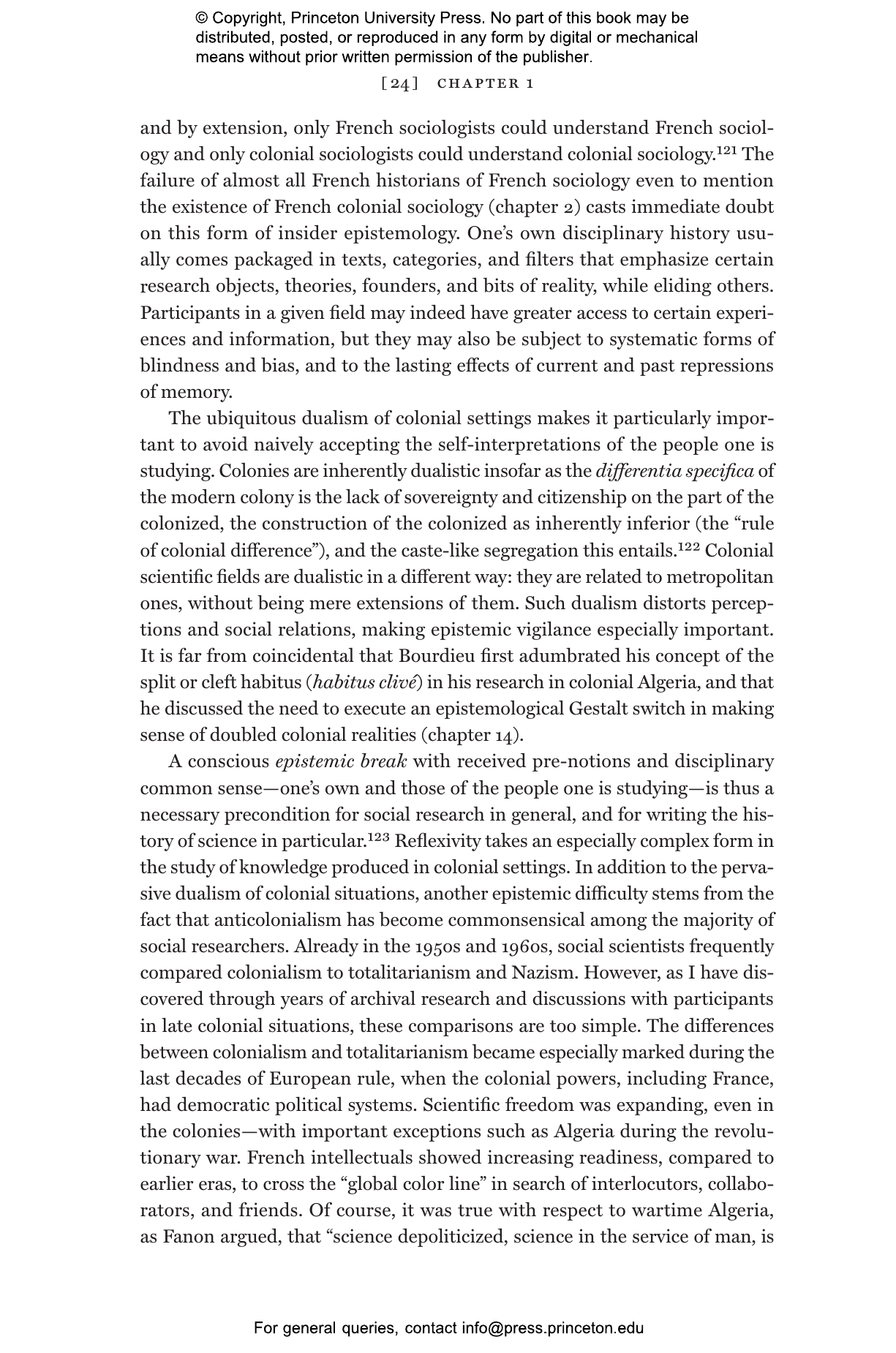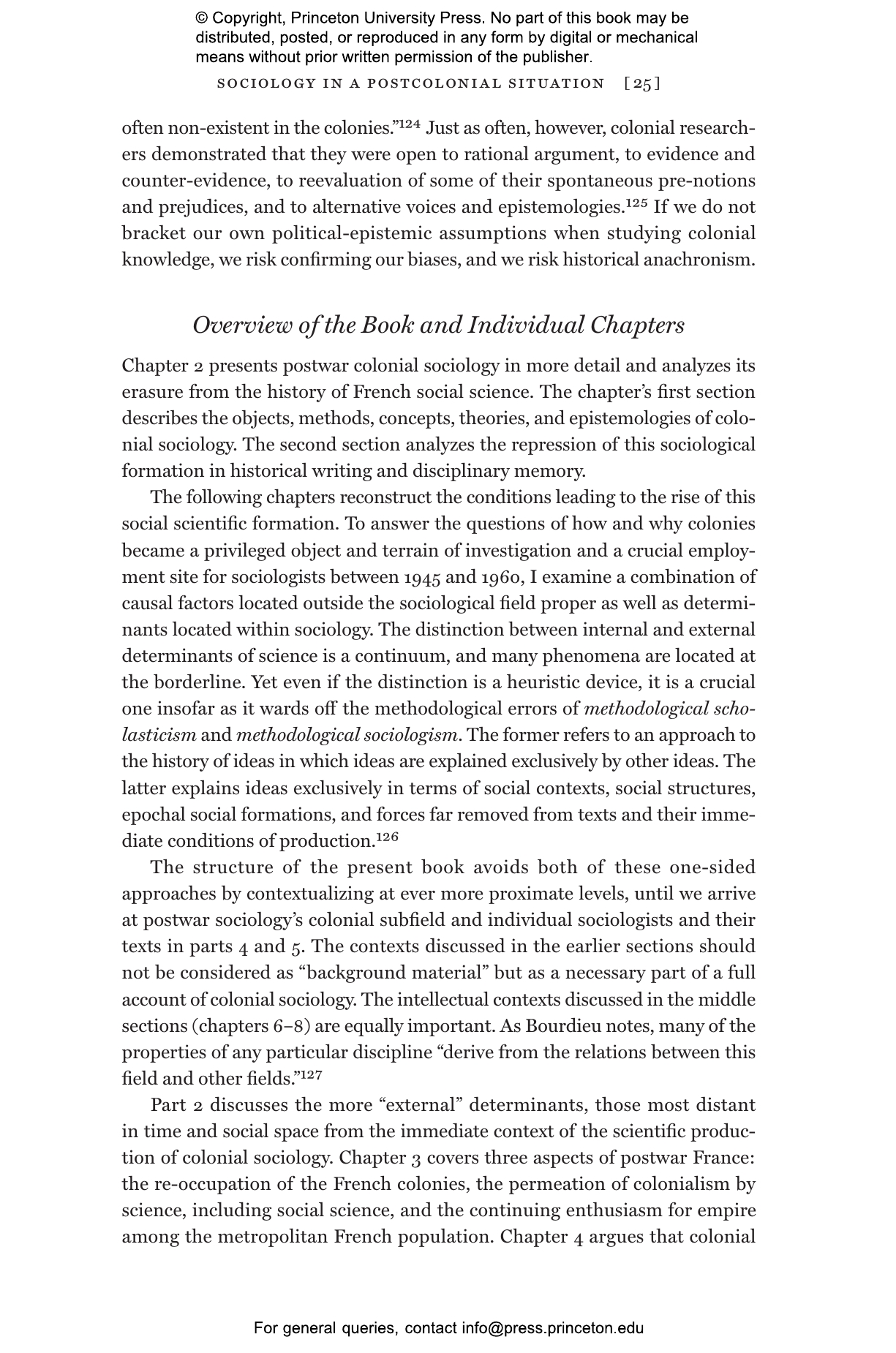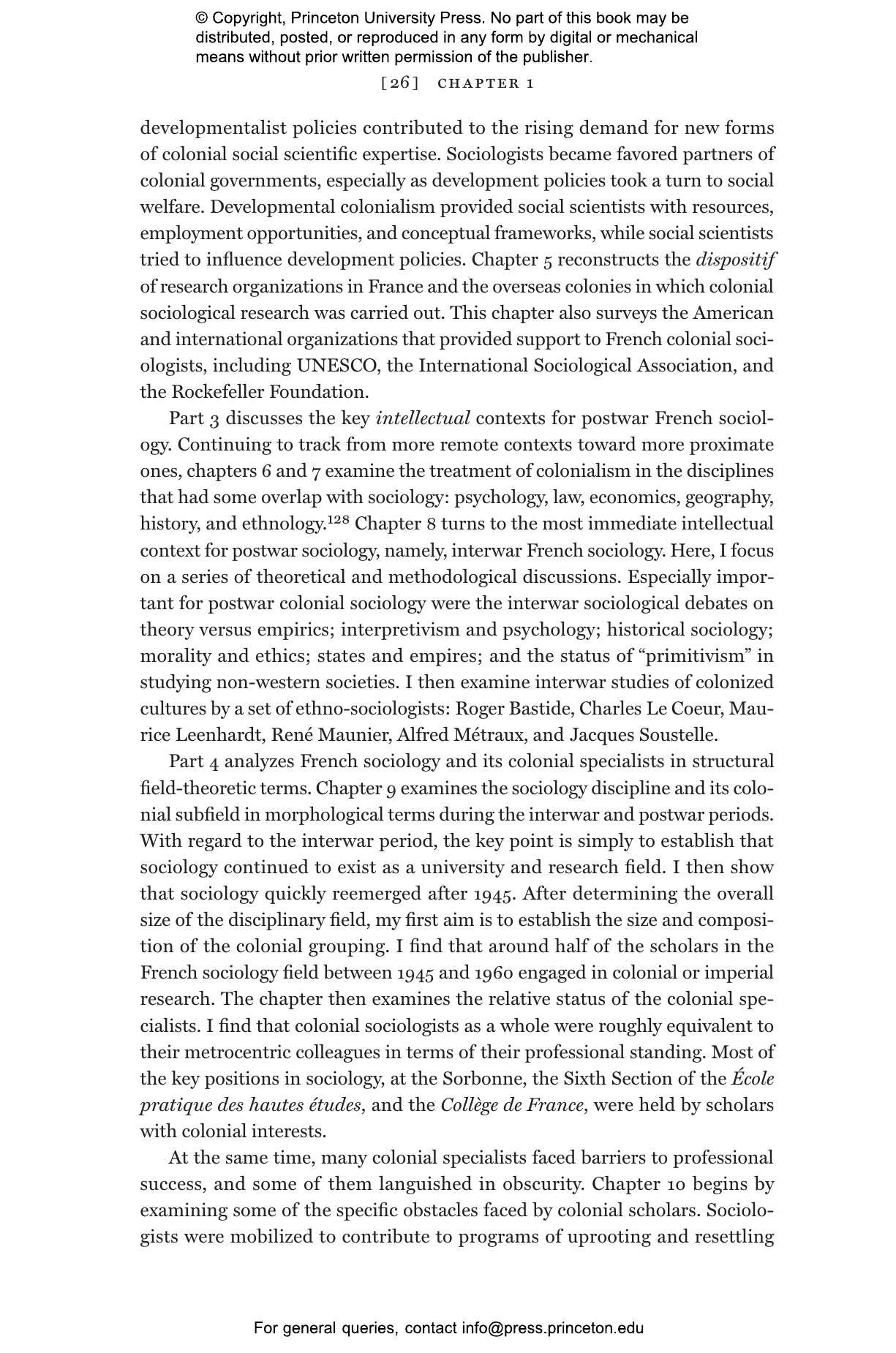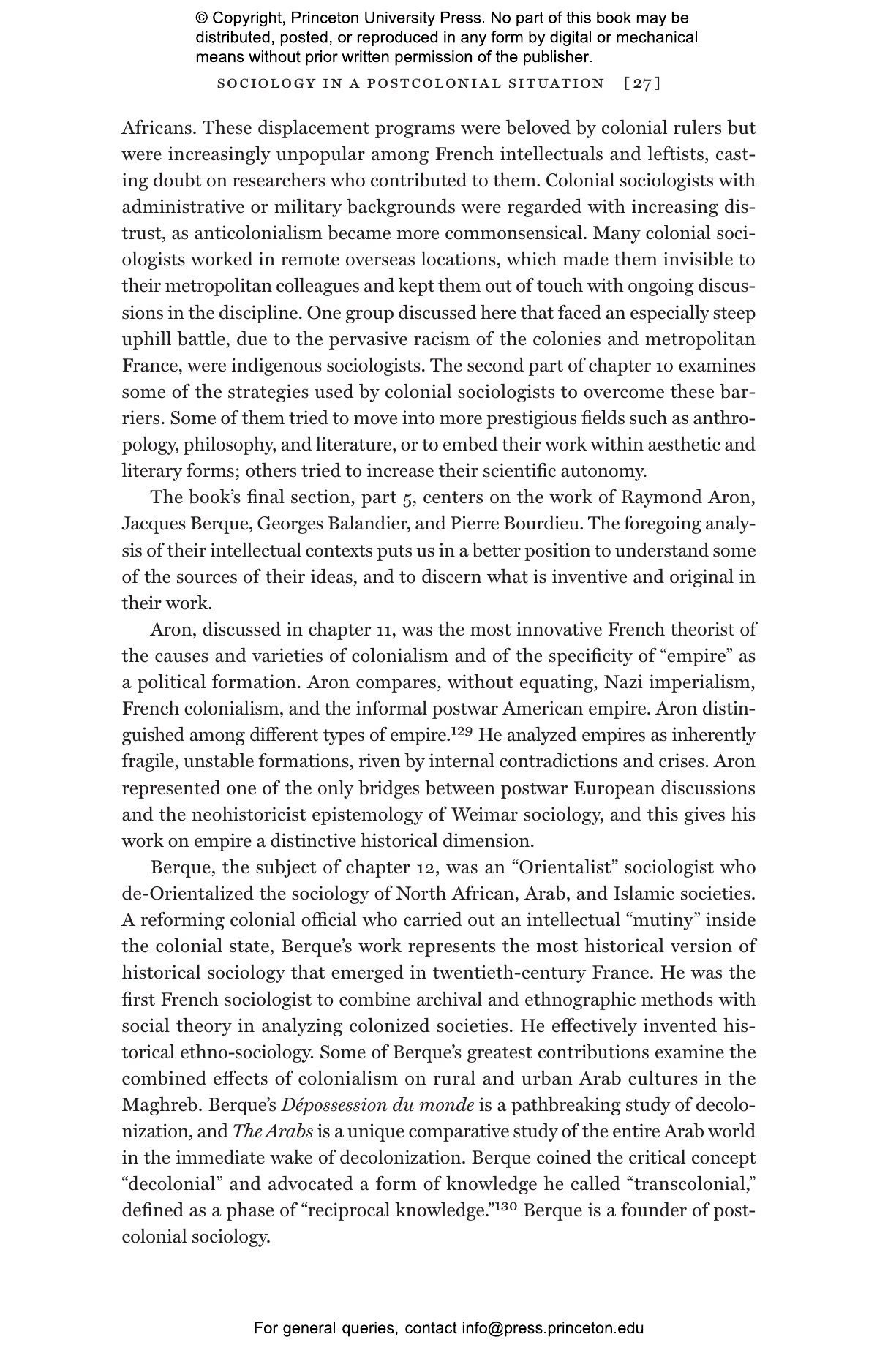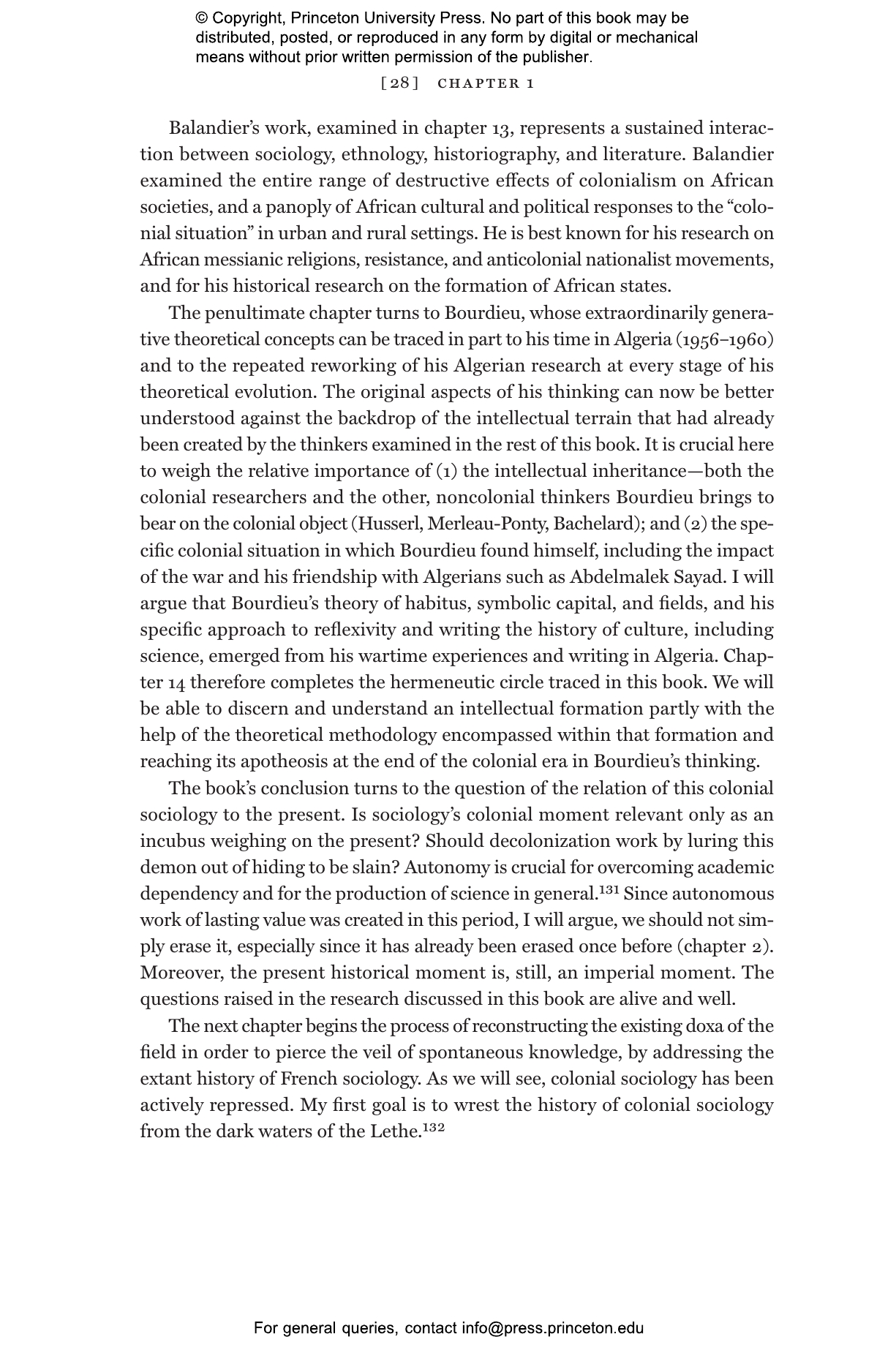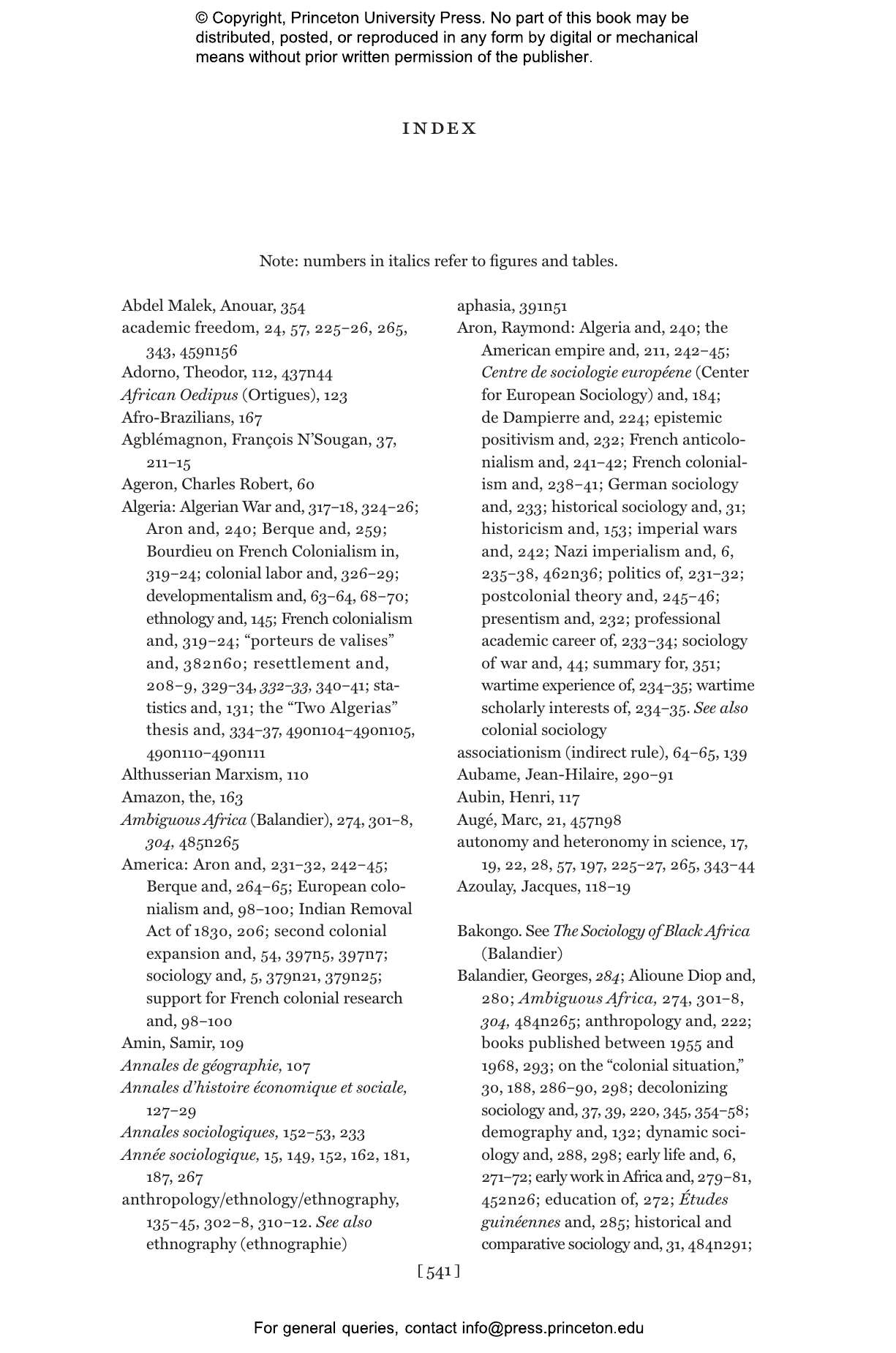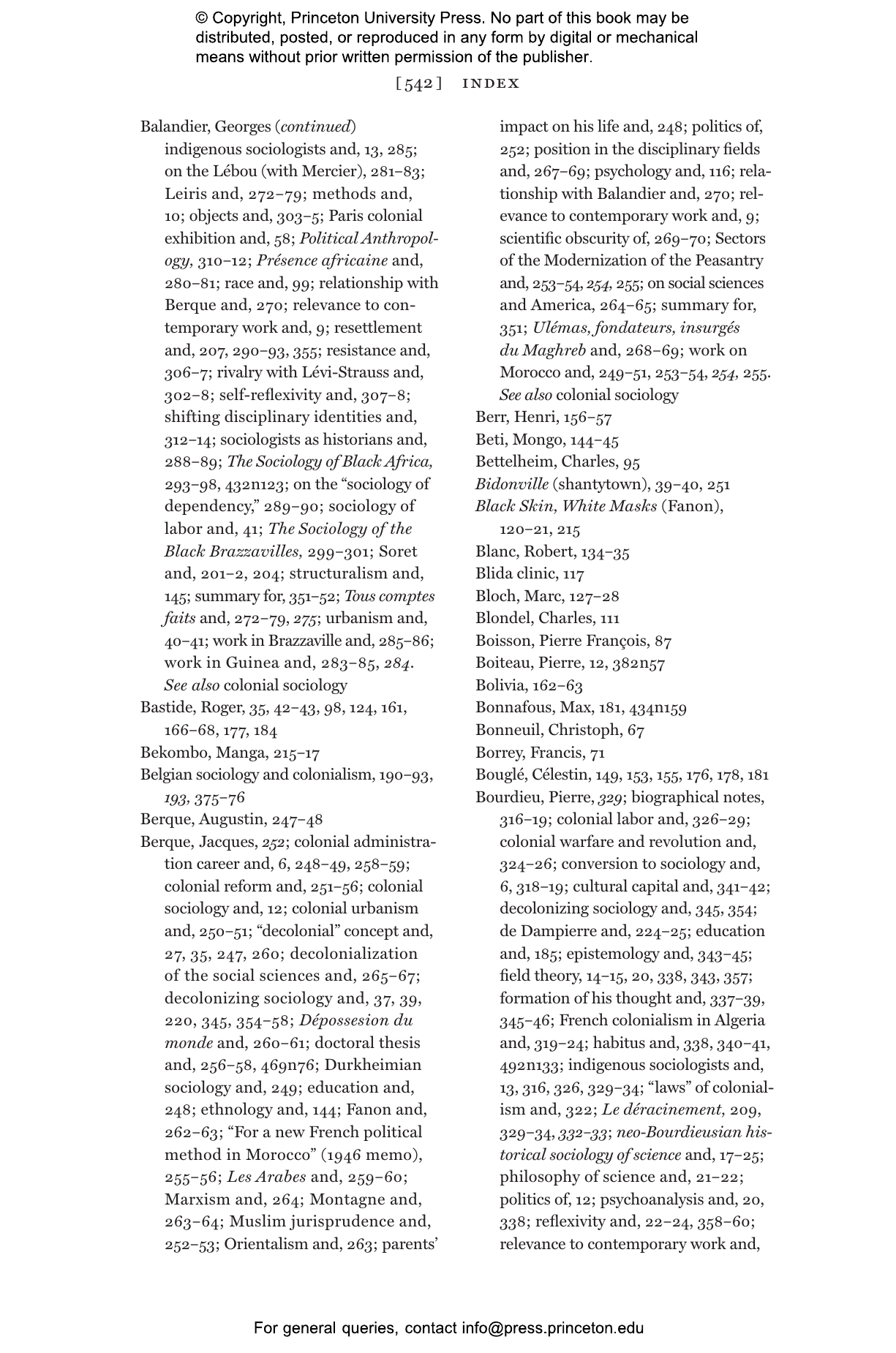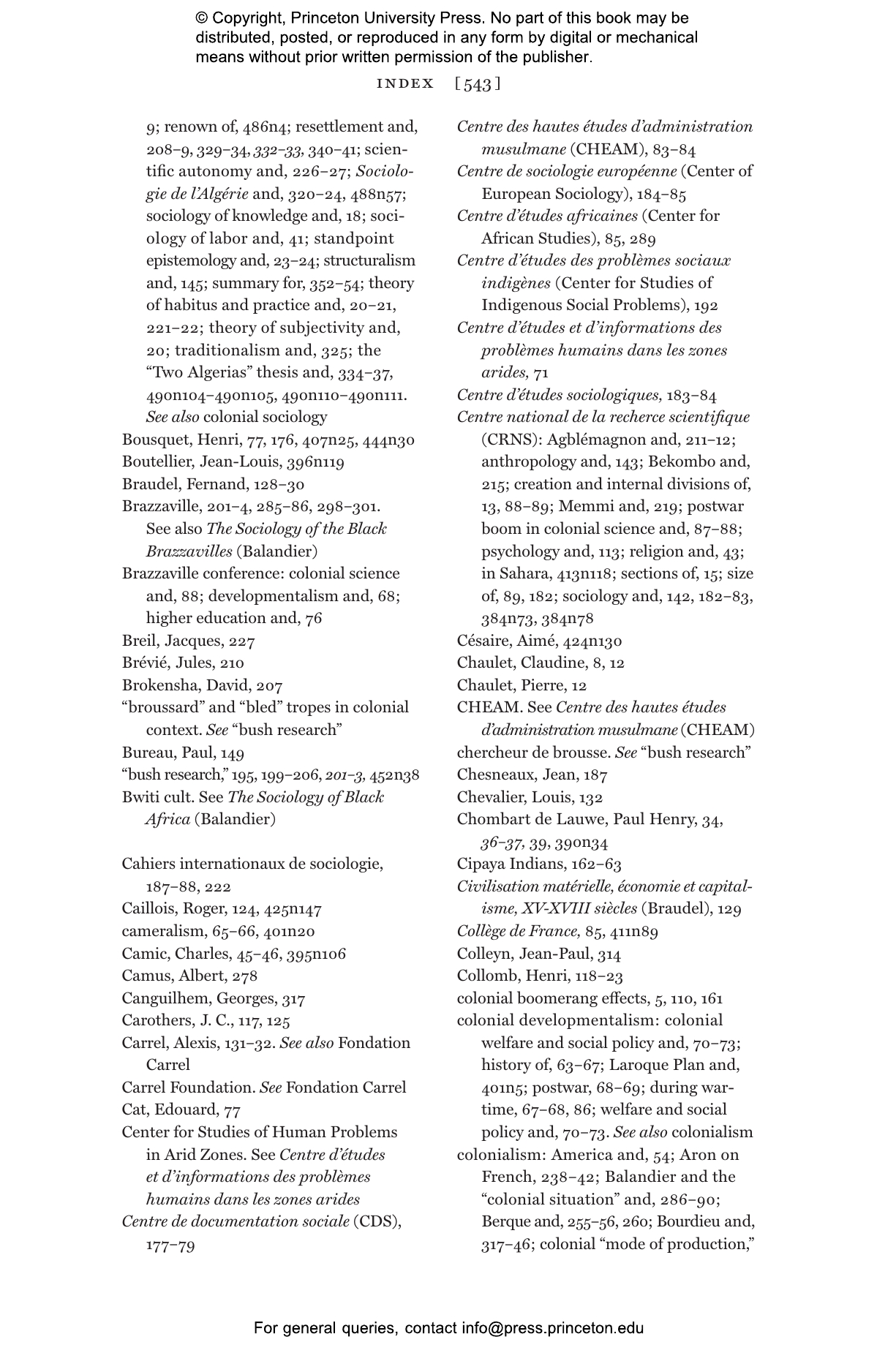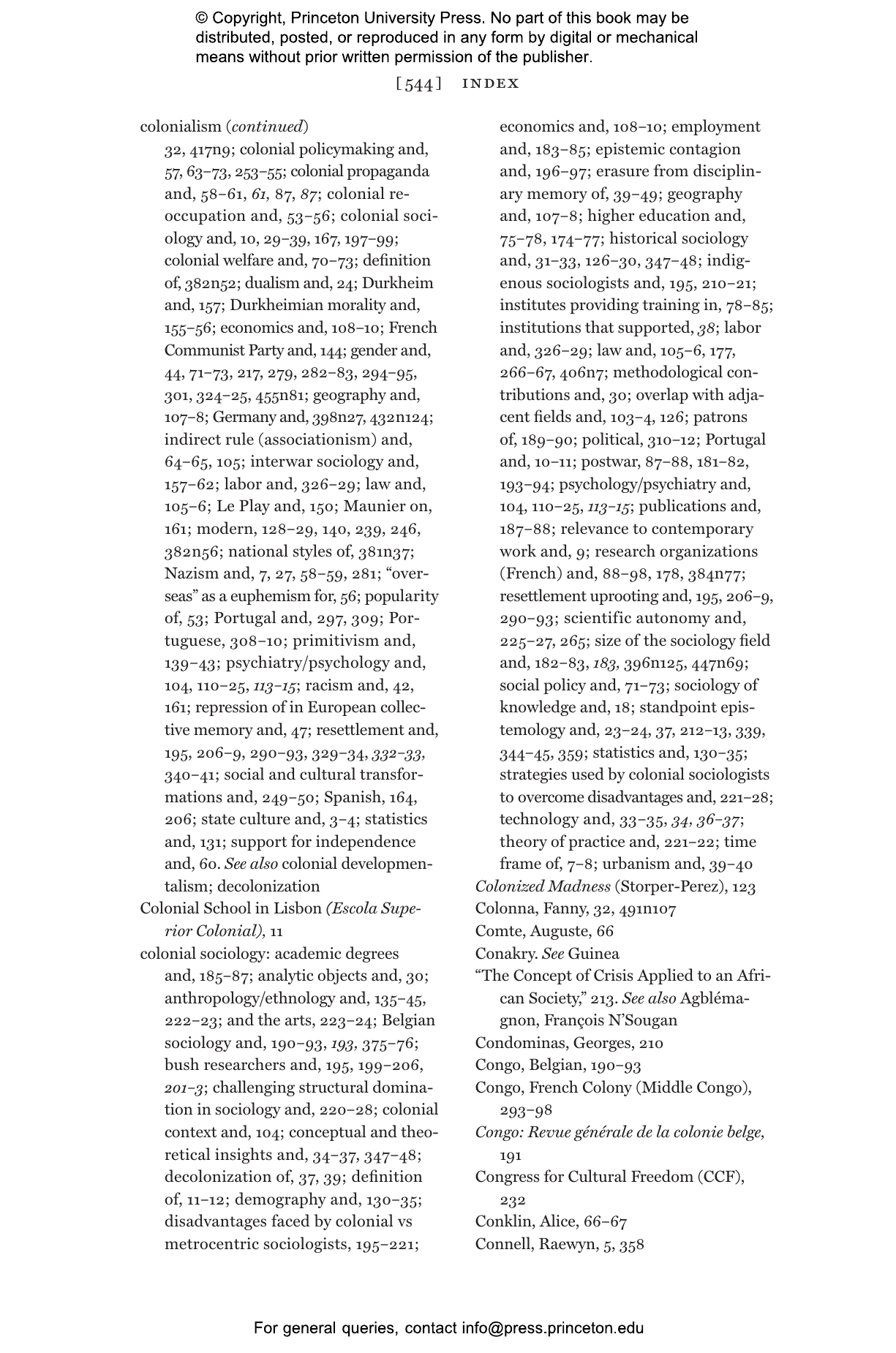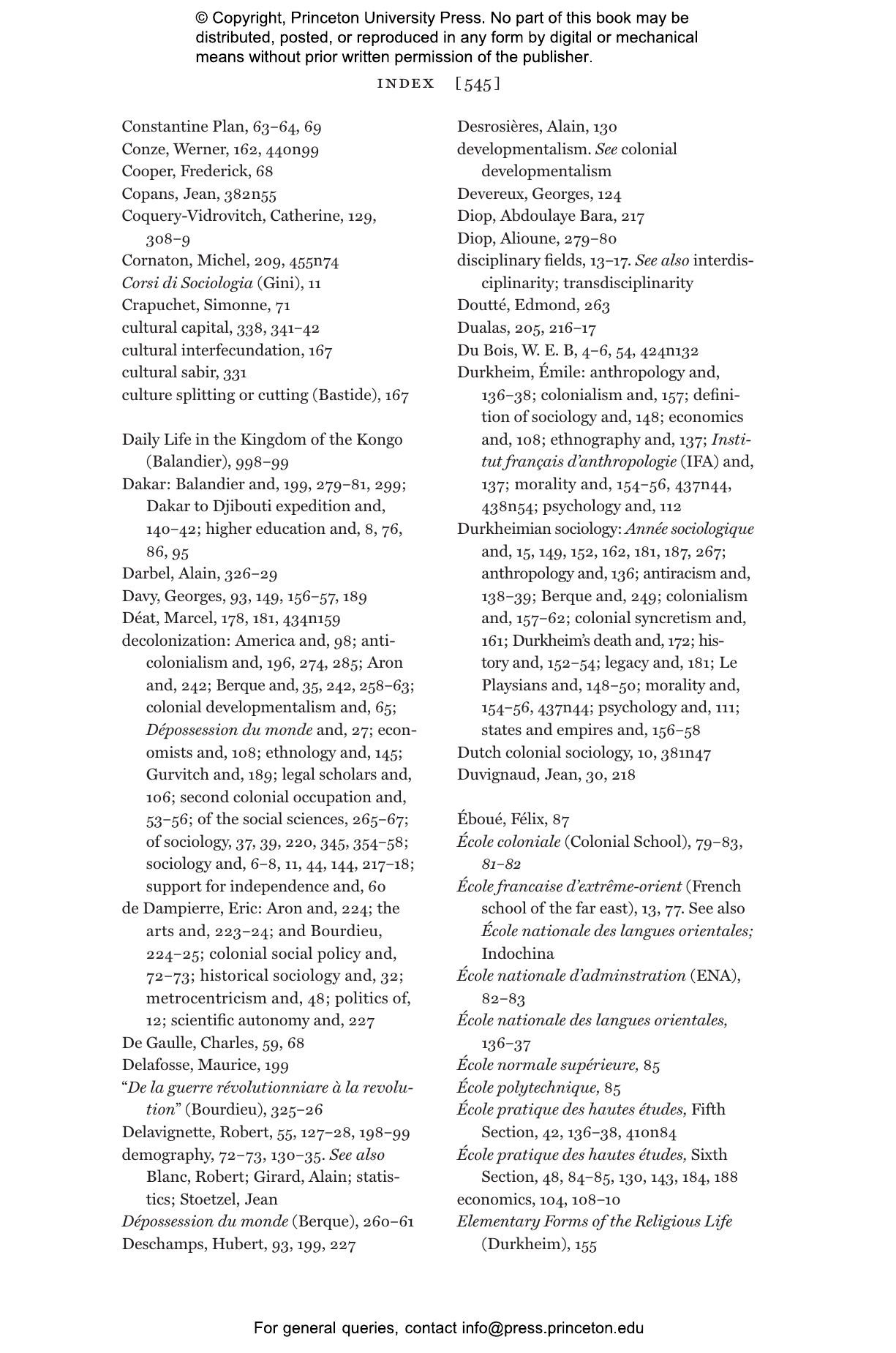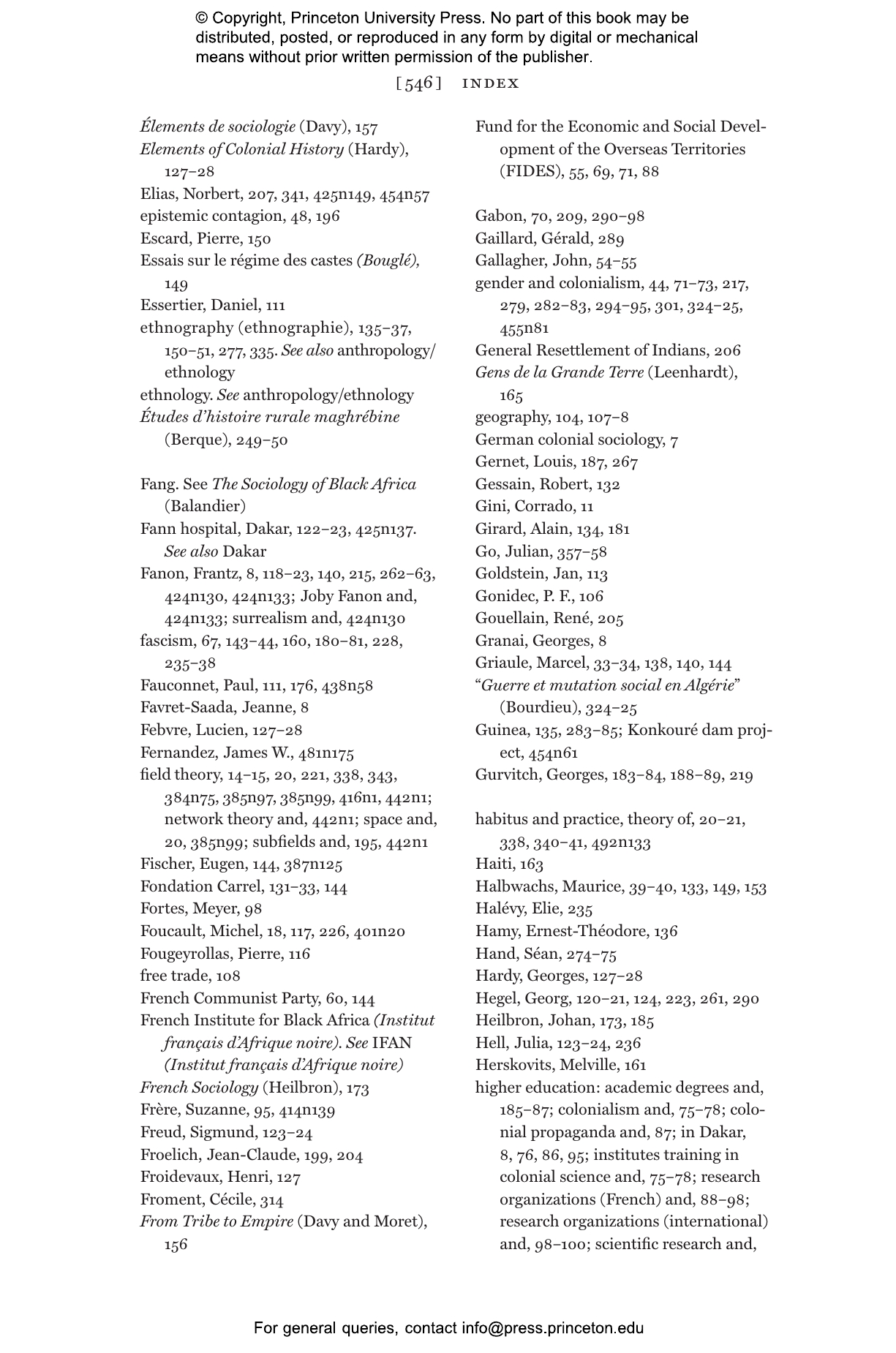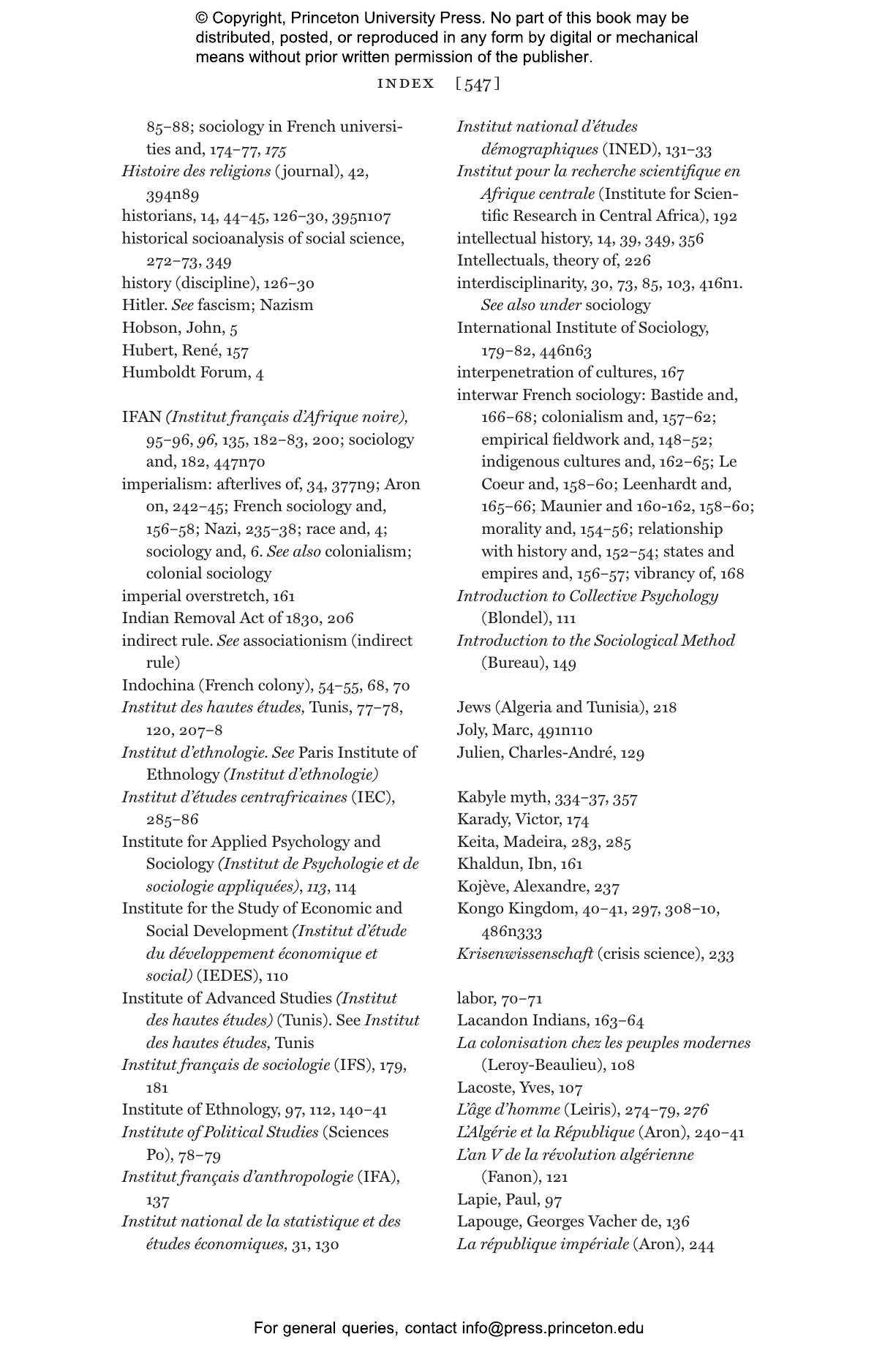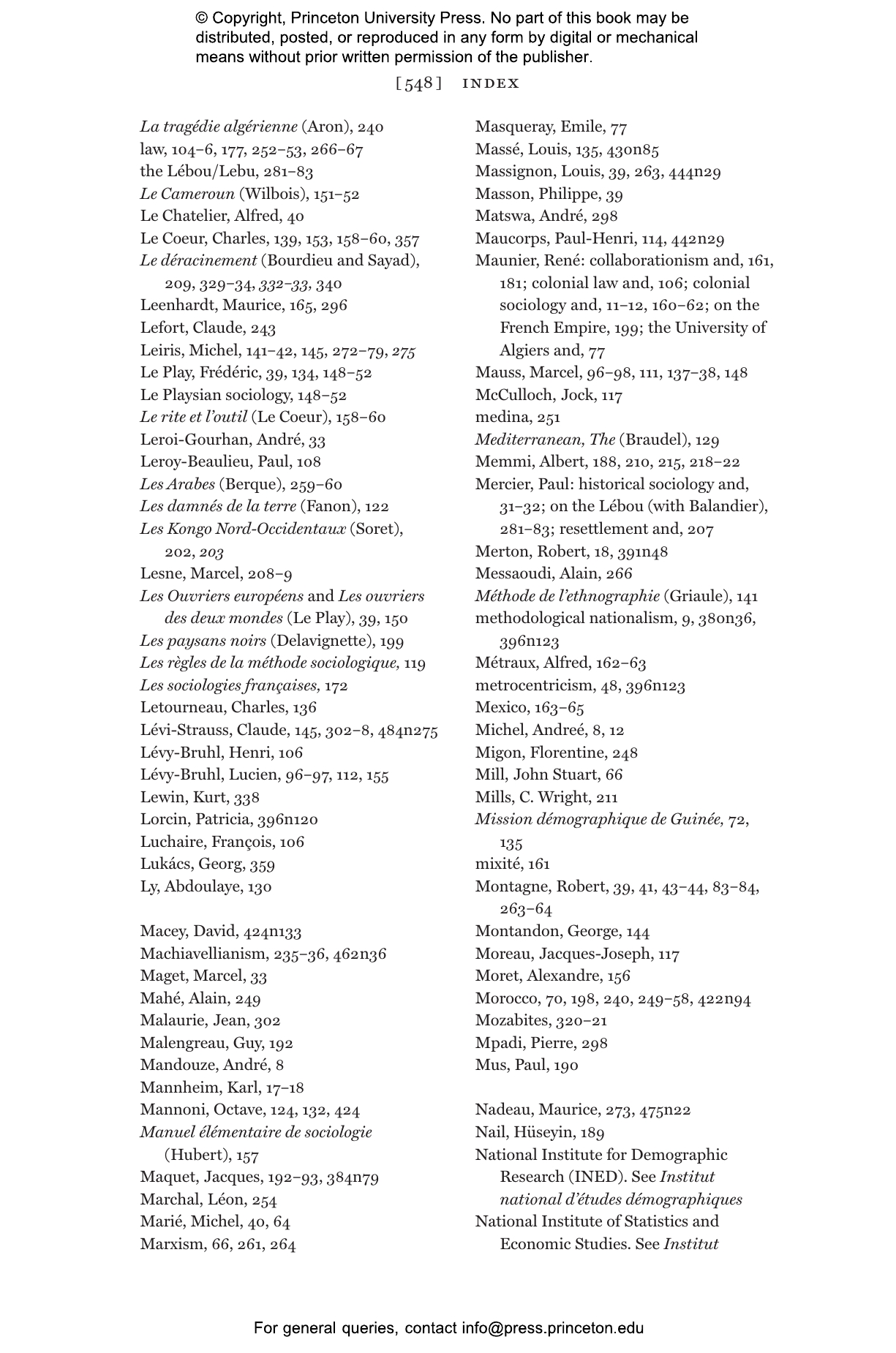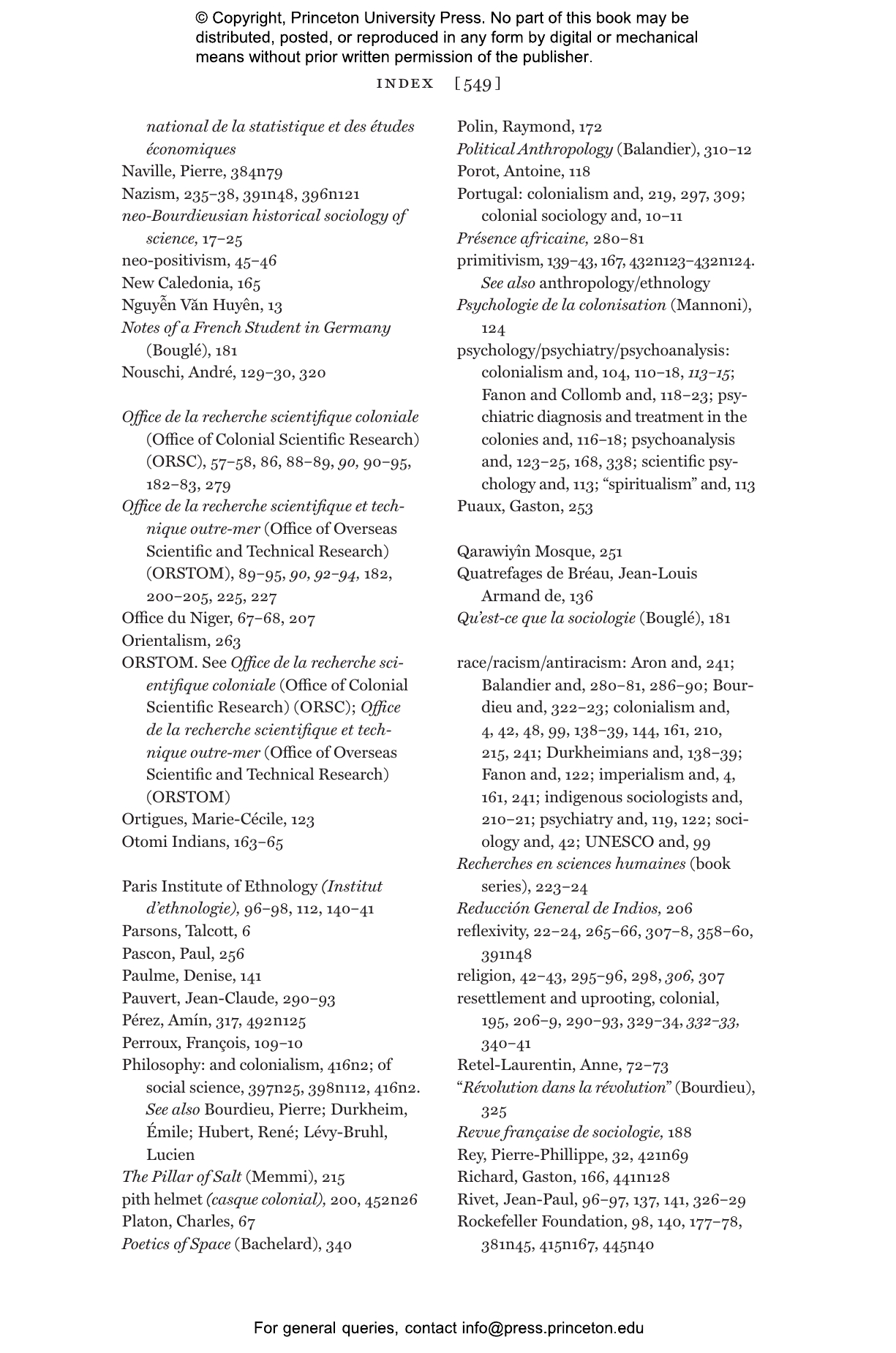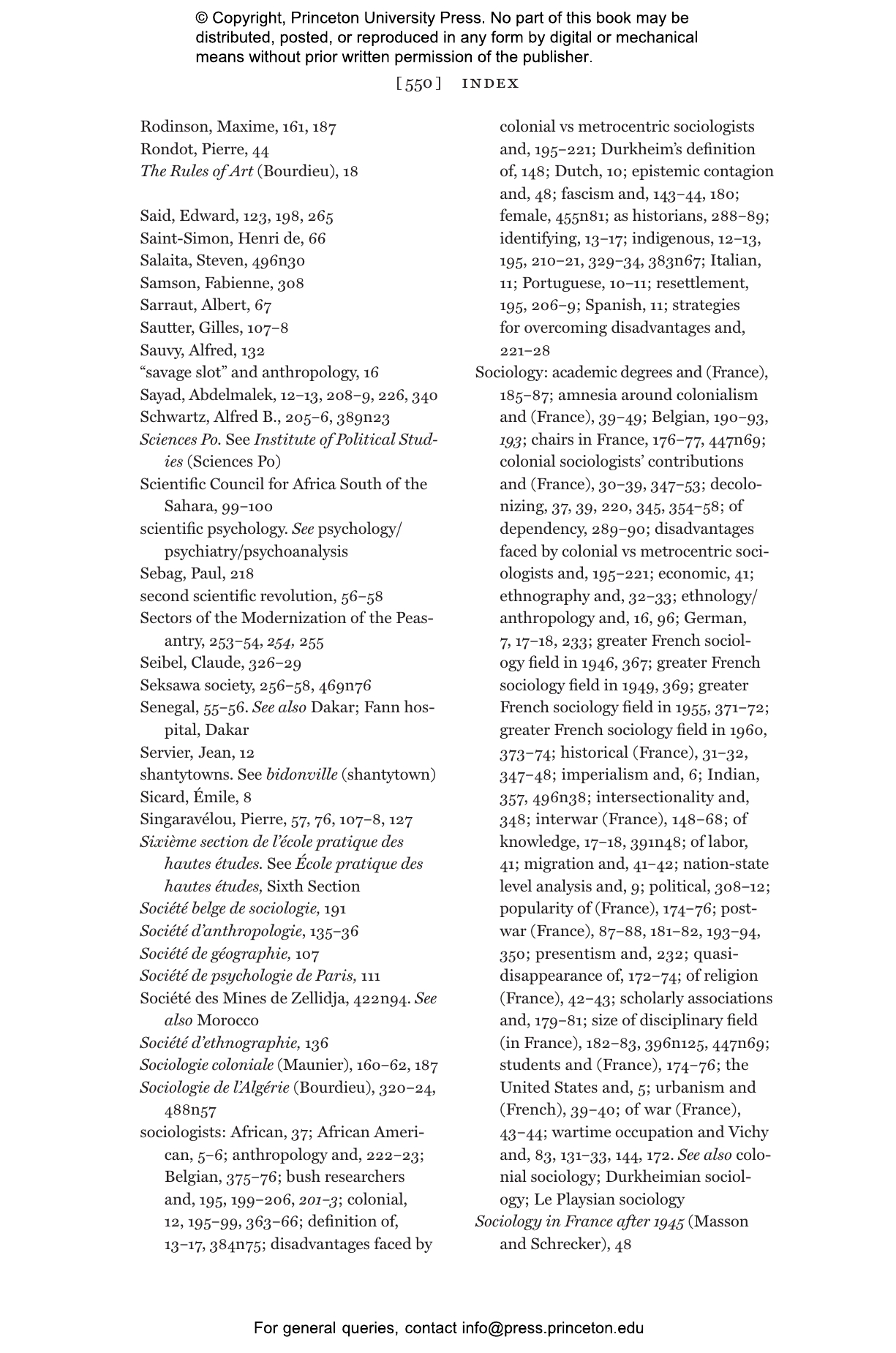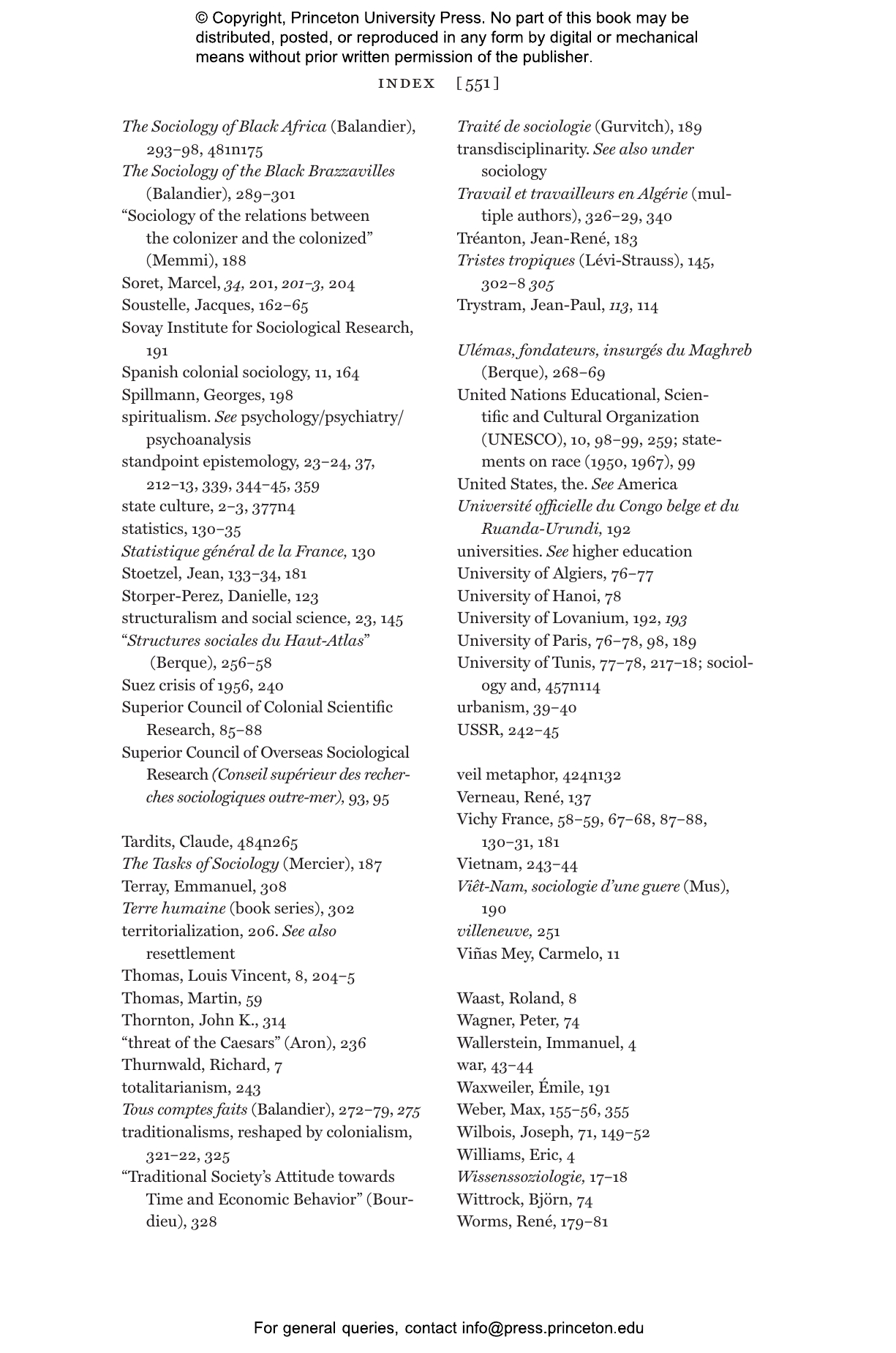In this provocative and original retelling of the history of French social thought, George Steinmetz places the history and development of modern French sociology in the context of the French empire after World War II. Connecting the rise of all the social sciences with efforts by France and other imperial powers to consolidate control over their crisis-ridden colonies, Steinmetz argues that colonial research represented a crucial core of the renascent academic discipline of sociology, especially between the late 1930s and the 1960s. Sociologists, who became favored partners of colonial governments, were asked to apply their expertise to such “social problems” as detribalization, urbanization, poverty, and labor migration. This colonial orientation permeated all the major subfields of sociological research, Steinmetz contends, and is at the center of the work of four influential scholars: Raymond Aron, Jacques Berque, Georges Balandier, and Pierre Bourdieu.
In retelling this history, Steinmetz develops and deploys a new methodological approach that combines attention to broadly contextual factors, dynamics within the intellectual development of the social sciences and sociology in particular, and close readings of sociological texts. He moves gradually toward the postwar sociologists of colonialism and their writings, beginning with the most macroscopic contexts, which included the postwar “reoccupation” of the French empire and the turn to developmentalist policies and the resulting demand for new forms of social scientific expertise. After exploring the colonial engagement of researchers in sociology and neighboring fields before and after 1945, he turns to detailed examinations of the work of Aron, who created a sociology of empires; Berque, the leading historical sociologist of North Africa; Balandier, the founder of French Africanist sociology; and Bourdieu, whose renowned theoretical concepts were forged in war-torn, late-colonial Algeria.
George Steinmetz is the Charles Tilly Professor of Sociology at the University of Michigan. He is the author of Regulating the Social: The Welfare State and Local Politics in Imperial Germany (Princeton); The Devil’s Handwriting: Precoloniality and the German Colonial State in Qingdao, Samoa and Southwest Africa; Sociology and Empire: The Imperial Entanglements of a Discipline; The Social Sciences in the Looking Glass: Studies in the Production of Knowledge; and other books.
"Steinmetz’s compelling work is a timely intervention and shows by example why attempts at 'decolonization' must first contextualize the diverse trajectories of what it means to be colonial, breaking from pre-notions about who is colonially complicit or anticolonial to begin with, and recognizing that decolonization must 'proceed by putting colonialism into the picture.'"—Austin H. Vo, Social Forces
"The analytical rigor and historical depth of [The Colonial Origins of Modern Social Thought] is astounding and a testament to the combination of hermeneutic abilities, multilingualism, historical scholarship, and in-depth understanding of Bourdieusian concepts that Steinmetz—and perhaps he alone—can bring to the table."—Tobias Werron, American Journal of Sociology
"The Colonial Origins of Modern Social Thought is a milestone in the history of sociology, far-reaching in its scope and objectives, and impressive in its material and archival basis. The book should impact strongly both the history of colonialism as a cultural, scientific, and epistemic project before and after WWII, as well as the history of sociology as an academic, disciplinary and intellectual field."—Anne Kwaschik, Social Science History
"An eye-opener and a game-changer. [The Colonial Origins of Modern Social Thought] represents a learned, deeply researched, and admirably constructed study: broad in scope, spanning a considerable period of time and tackling a pressing problem – colonial social science – in a sophisticated and challenging manner."—Johan Heilbron, Social Science History
"A major contribution to a variety of literatures and scholarly concerns, including the history of the social sciences, the sociology of knowledge, and the inner mechanisms of empire."—Christian Dayé, Social Science History
“The Colonial Origins of Modern Social Thought explains the origins of scientific and political confrontations in French intellectual history while posing challenging questions about the relative autonomy of the social sciences in the colonial world more broadly. This important and original book is certain to become an invaluable reference for scholars and a fruitful source for new explorations.”—Christophe Charle, author of Birth of the Intellectuals
“A brilliant, monumental work. It is, and will long stand, as the definitive source for our understanding of ‘colonial sociology.’ Going beyond a purely historical account, the book examines the nexus of colonialism and empire in the writings of dozens of French social scientists. In a dazzling move, Steinmetz traces the genesis of many of Pierre Bourdieu’s central concepts to his early career as a researcher in Algeria. This pathbreaking analysis will be read worldwide.”—Charles Camic, Northwestern University
“A milestone in the history of sociology, far-reaching in its scope and objectives, and impressive in its material and archival basis.There is no doubt that it will impact strongly on the historiography of both colonialism as a cultural and scientific project after World War II and sociology more broadly as an academic discipline.”—Anne Kwaschik, University of Konstanz
“A very important contribution to the field of the history of social sciences and their entanglements with empire. The scholarship is impeccable. The complex and rich method used by the author to build a history of the discipline of sociology—a concentric approach, from ‘context’ to ‘text’—is brilliant.”—Emmanuelle Saada, Columbia University


